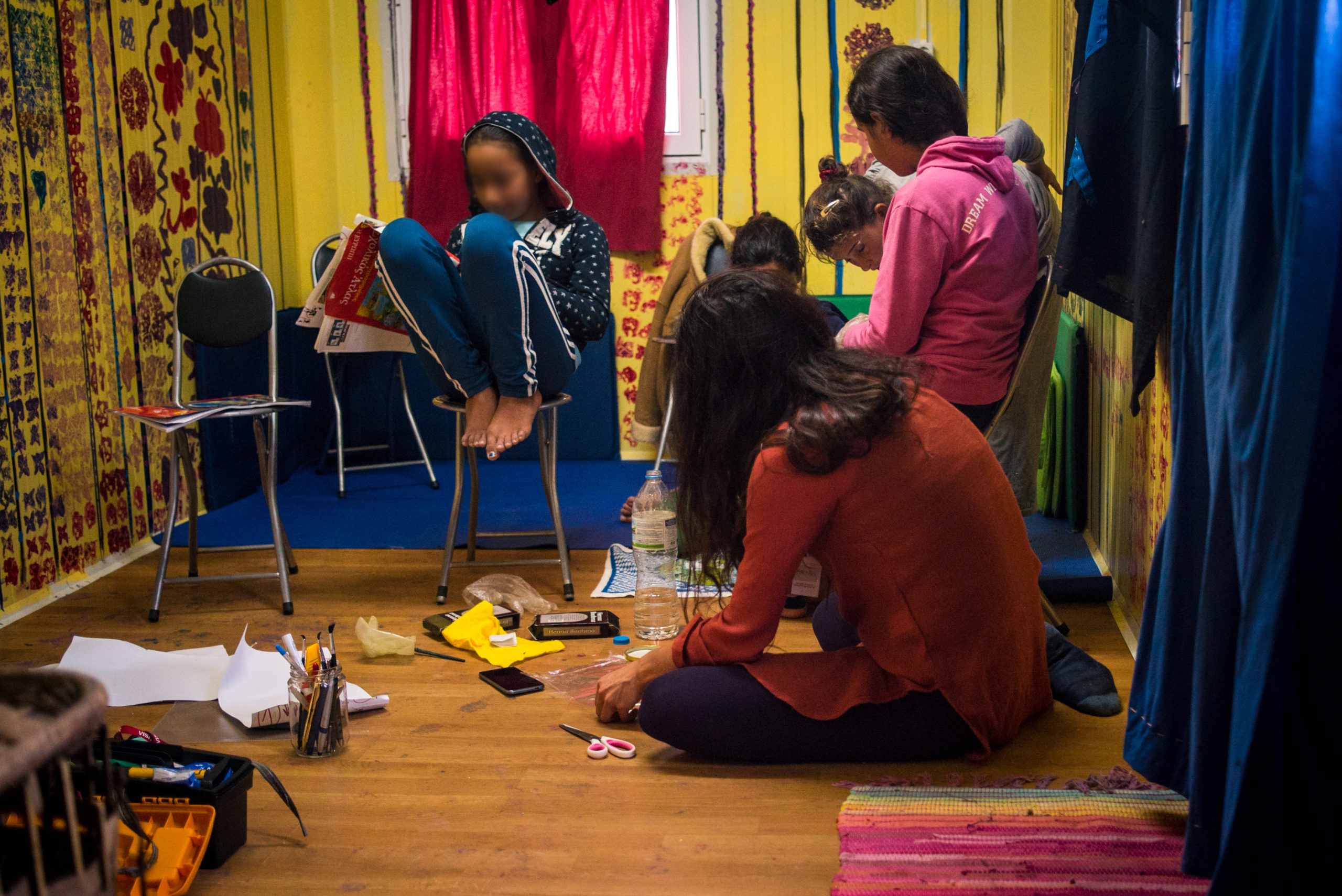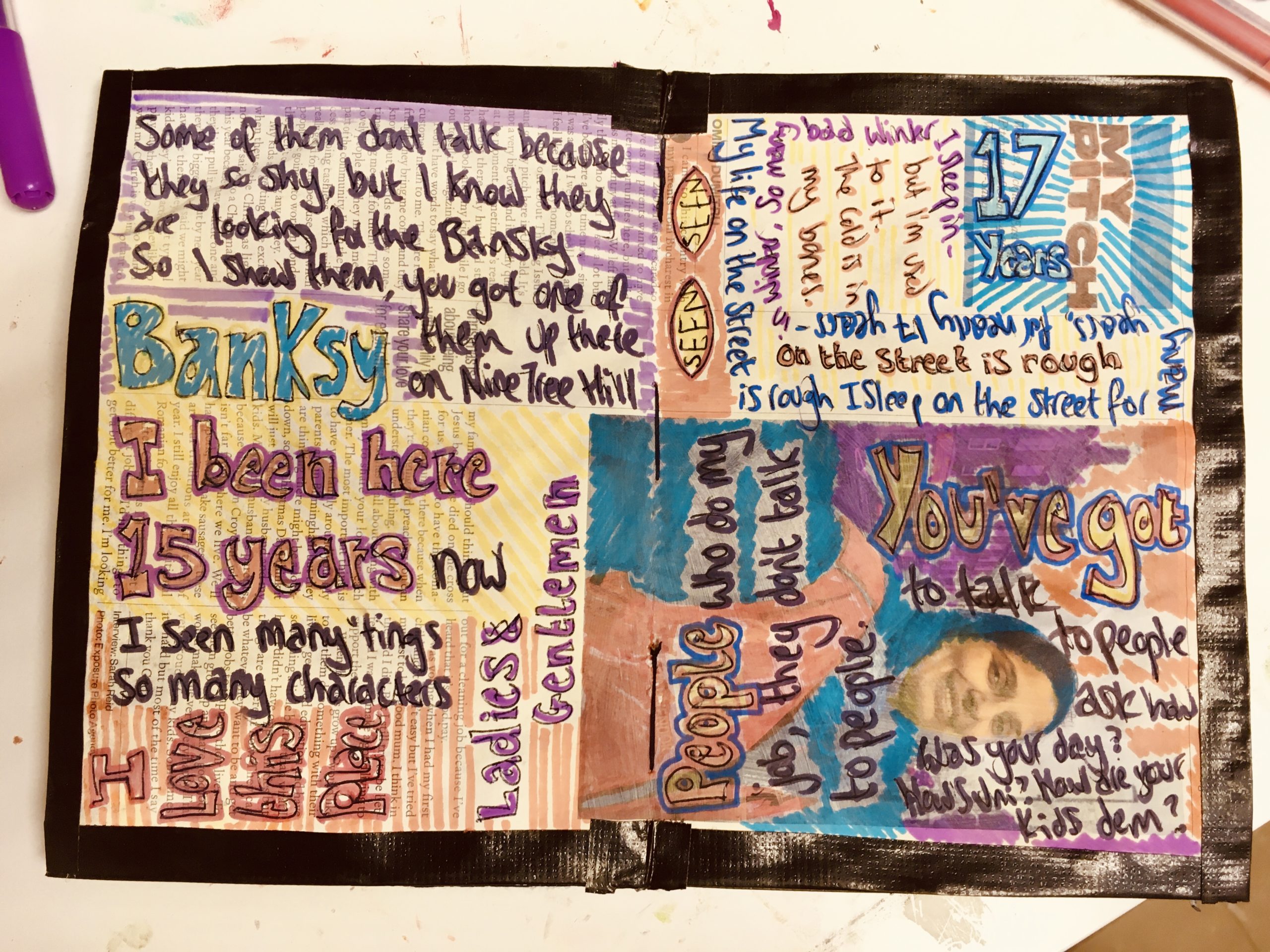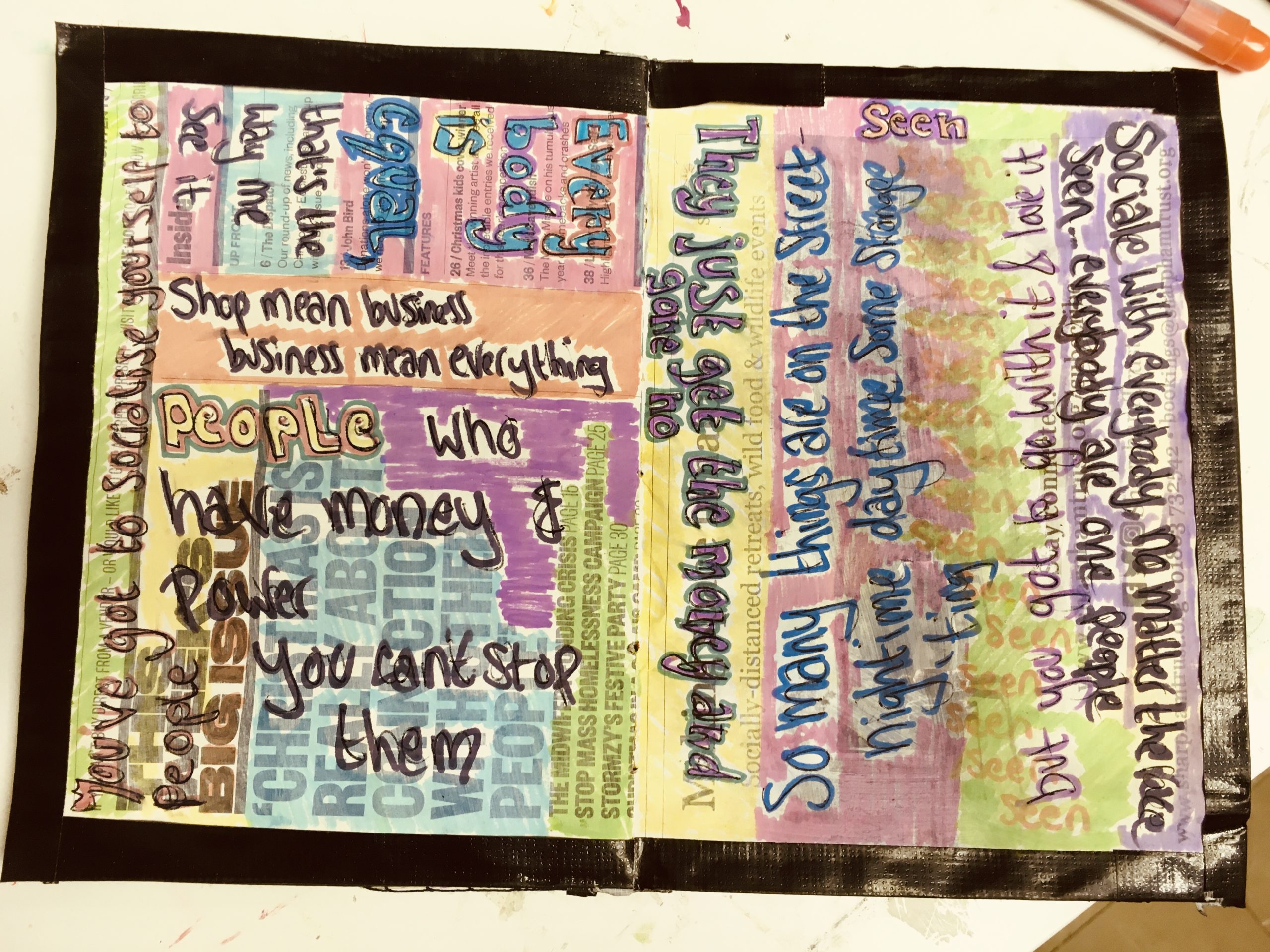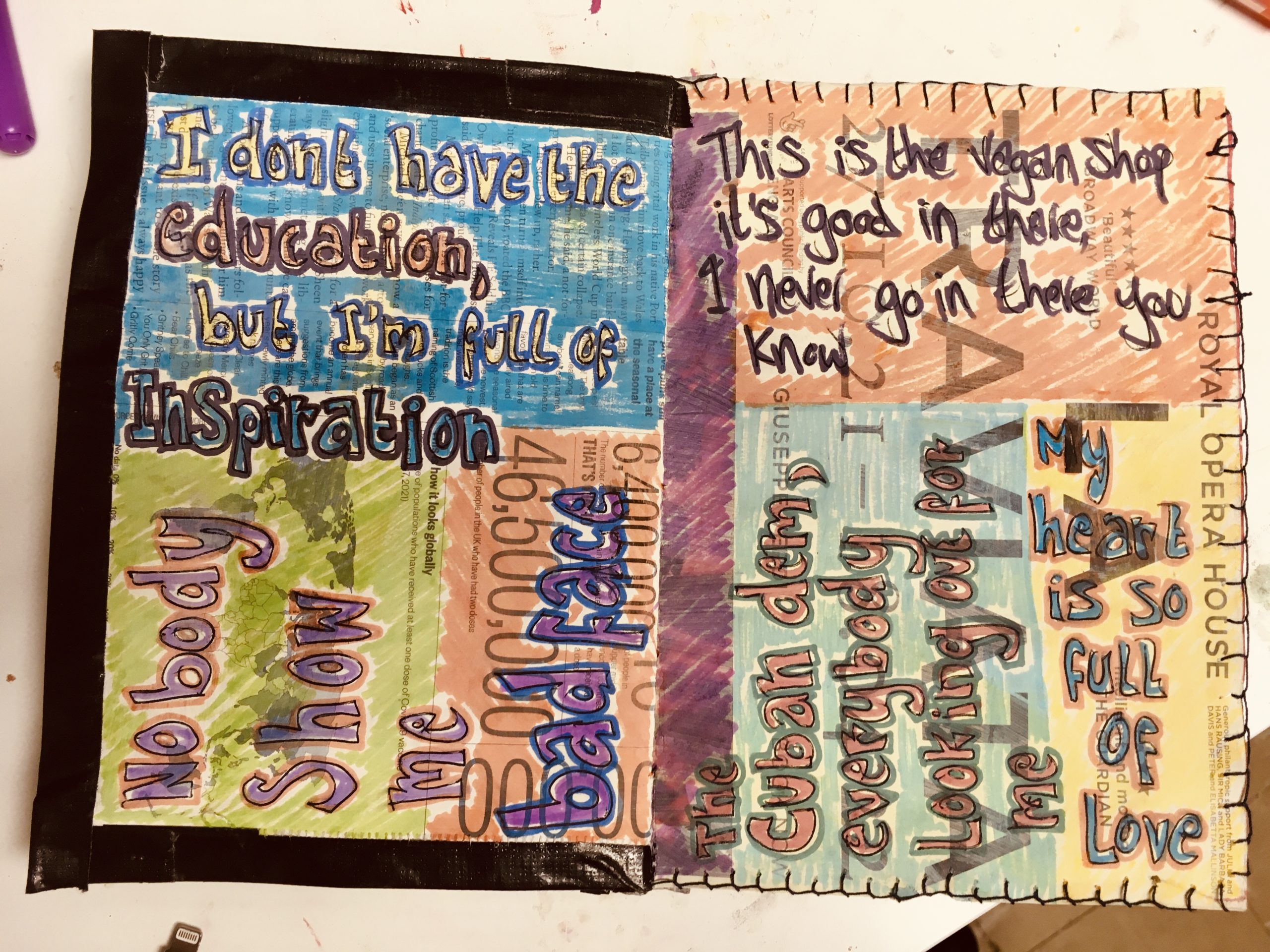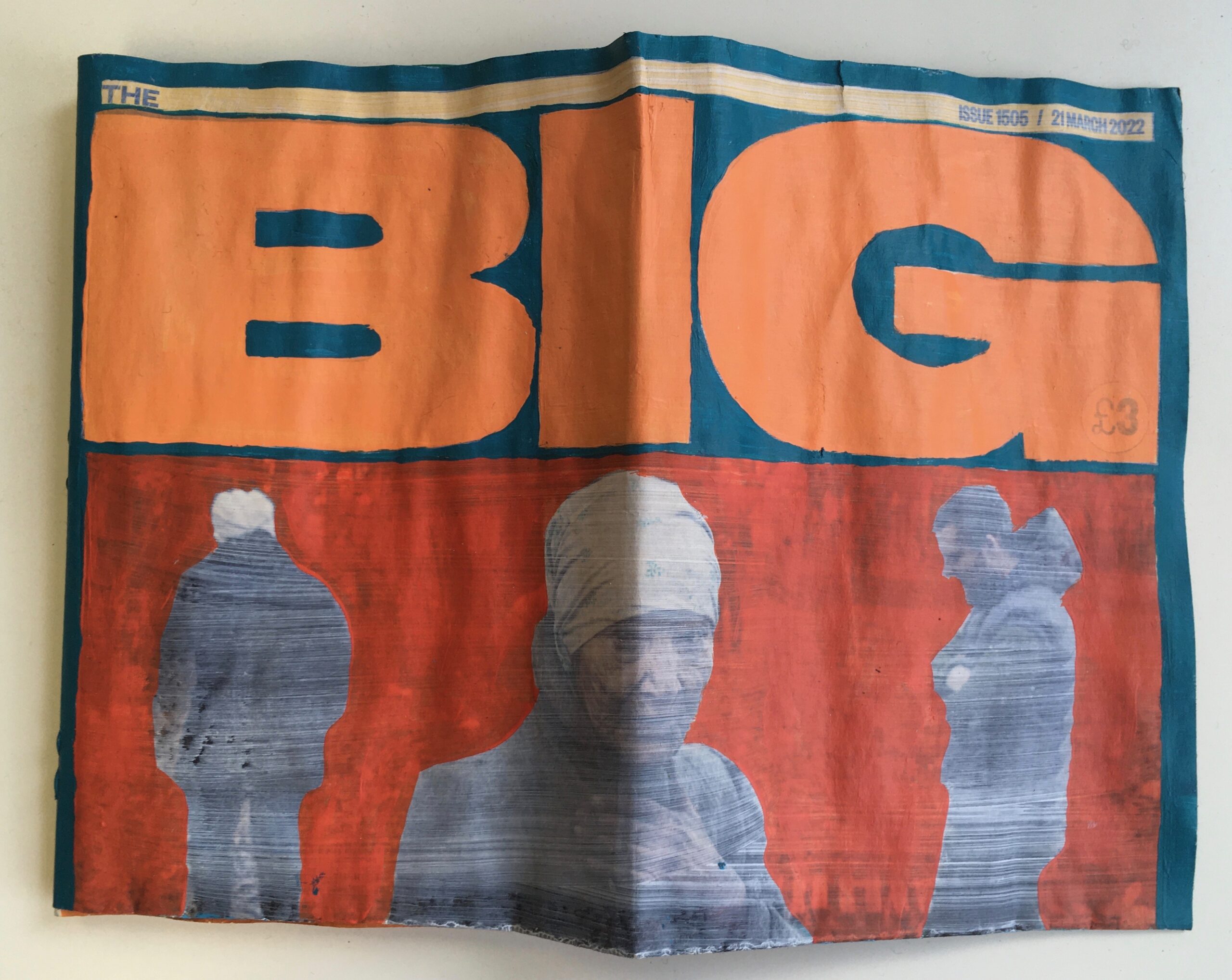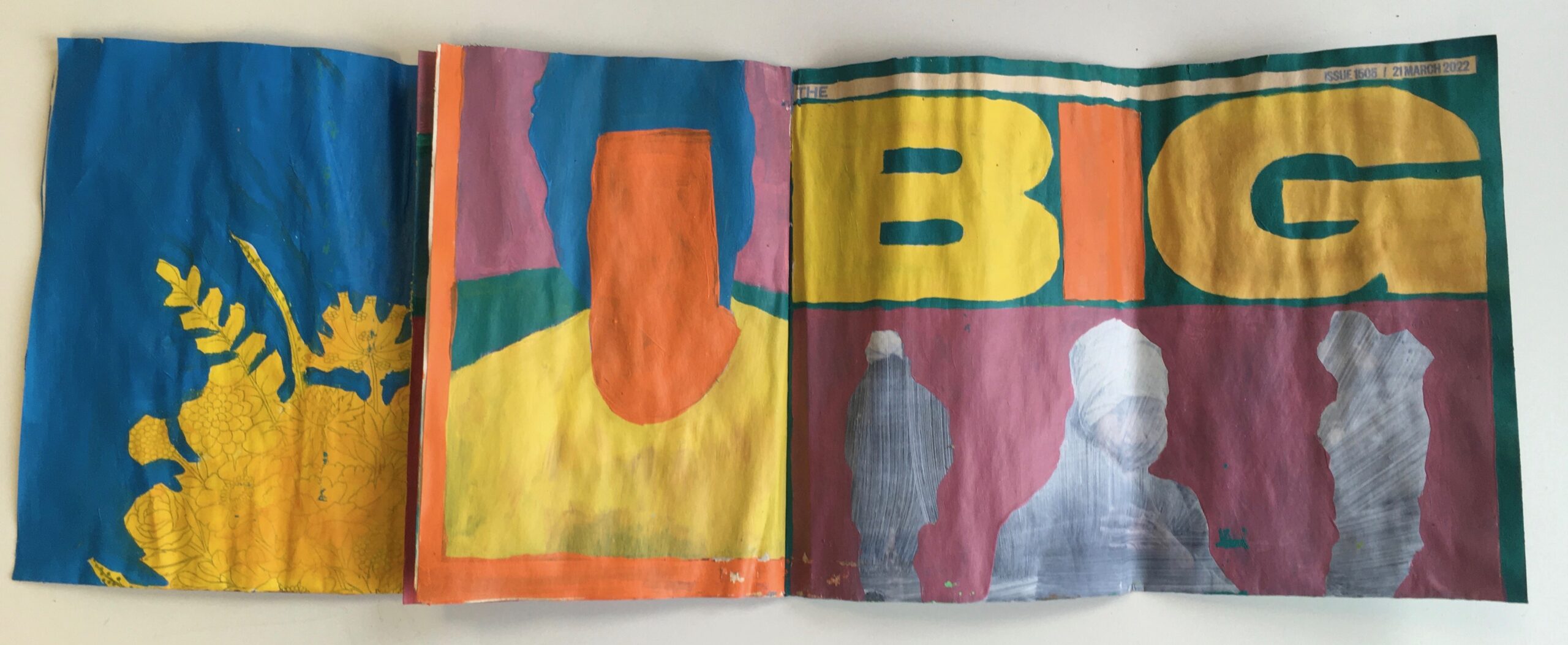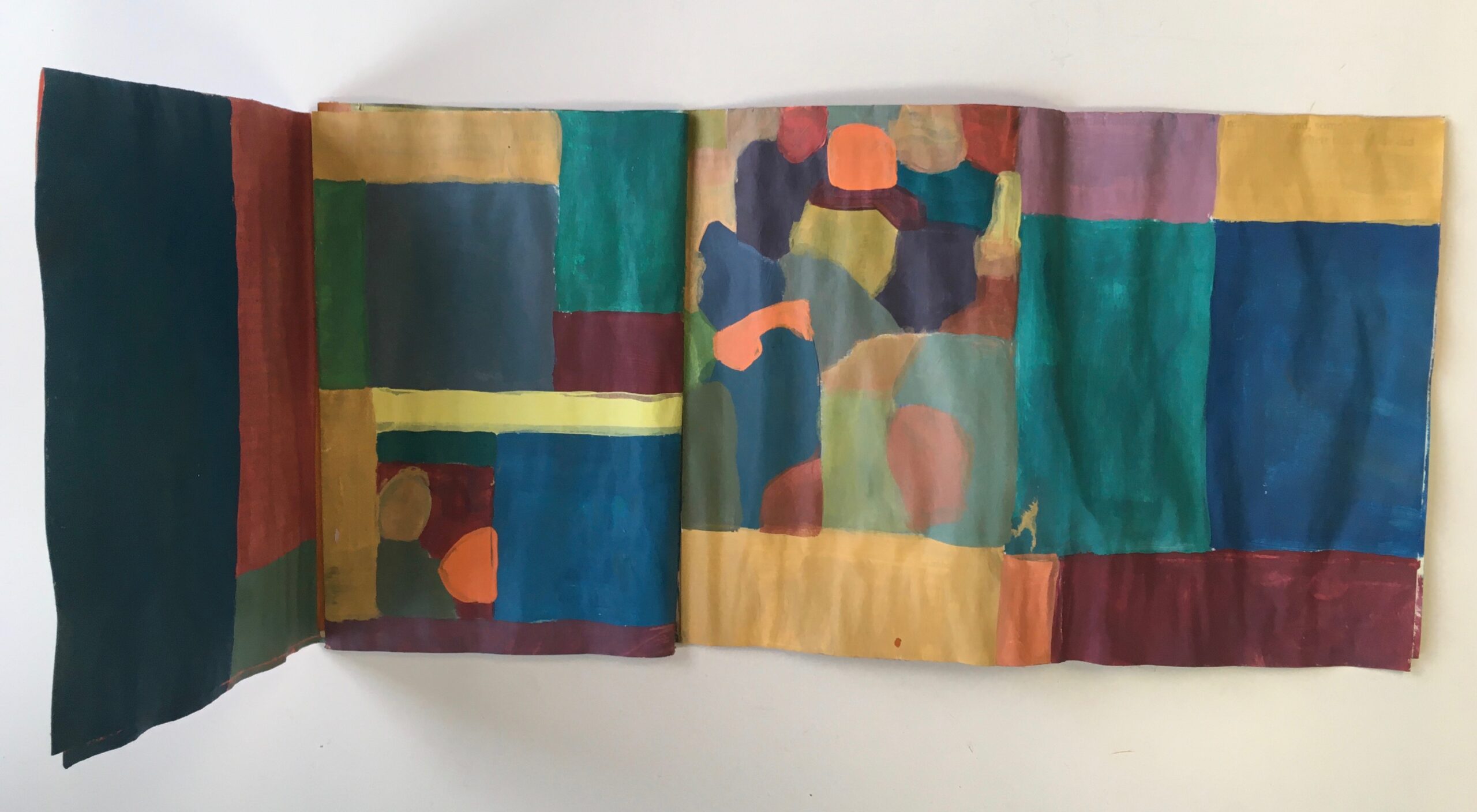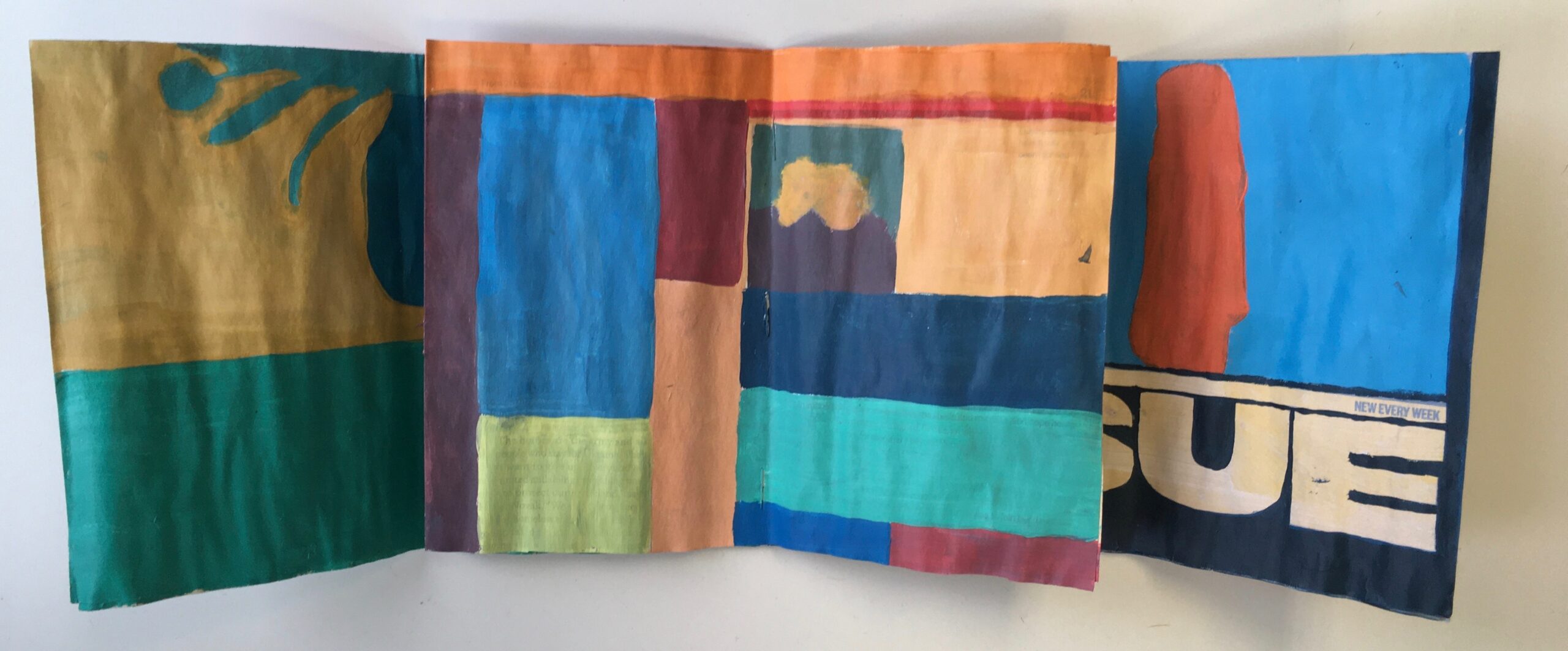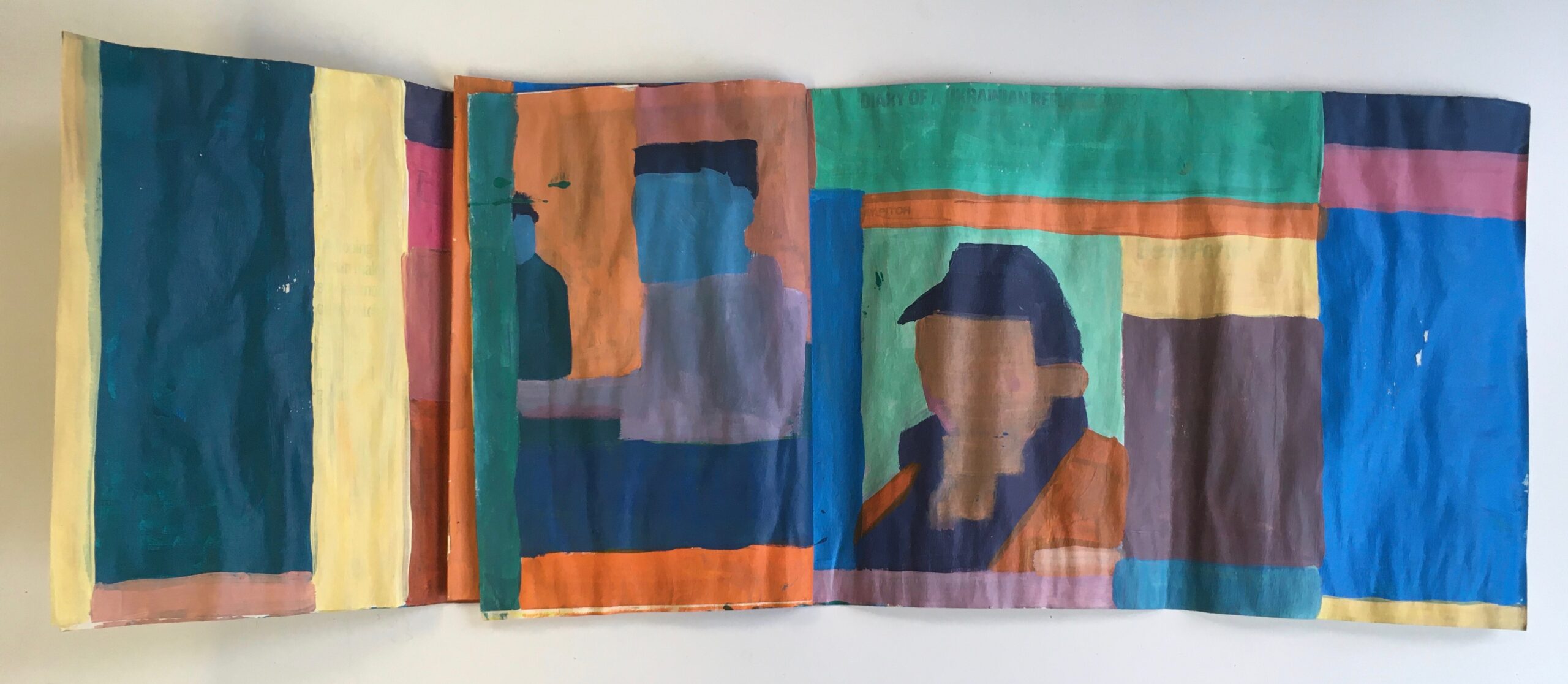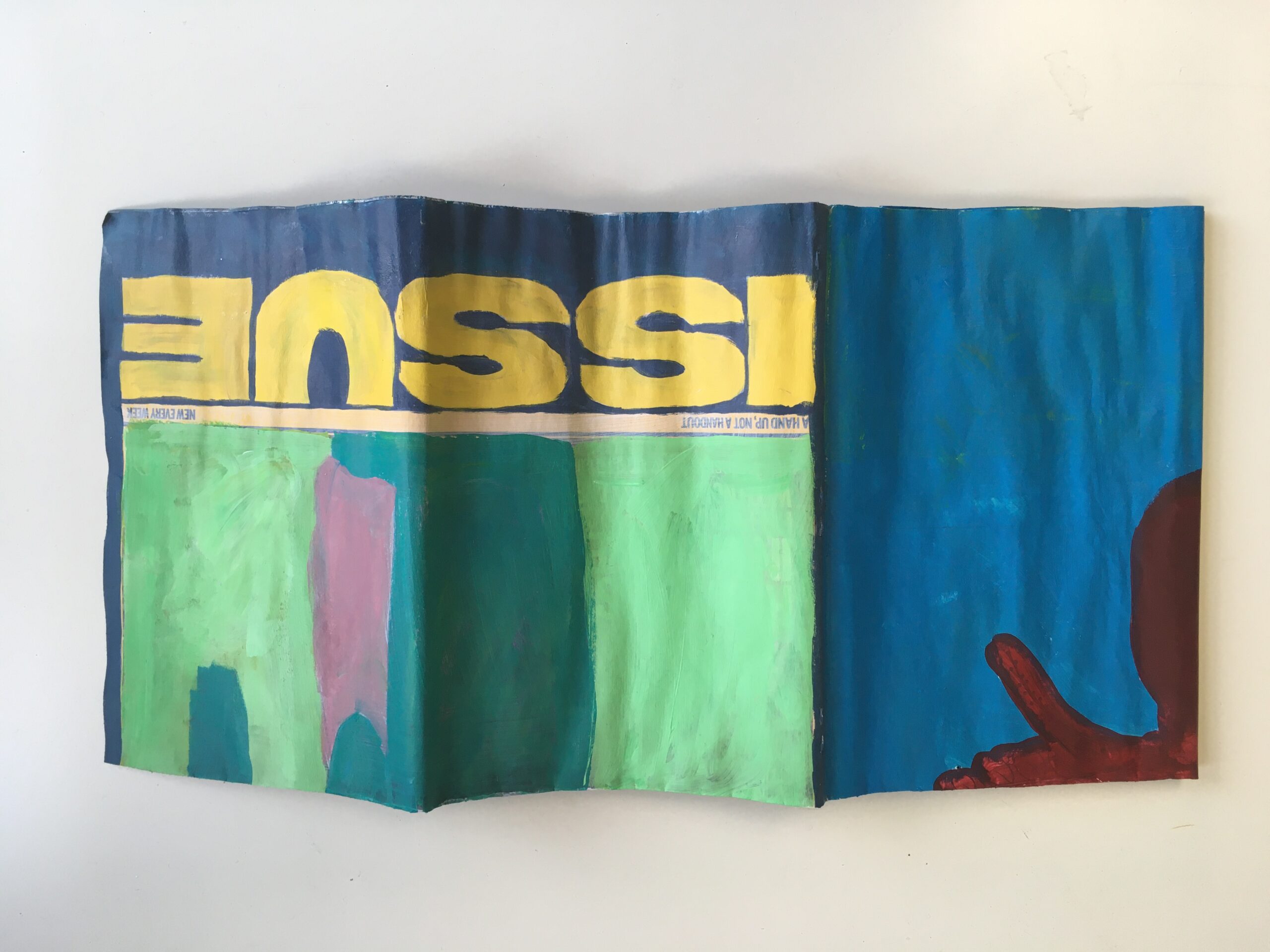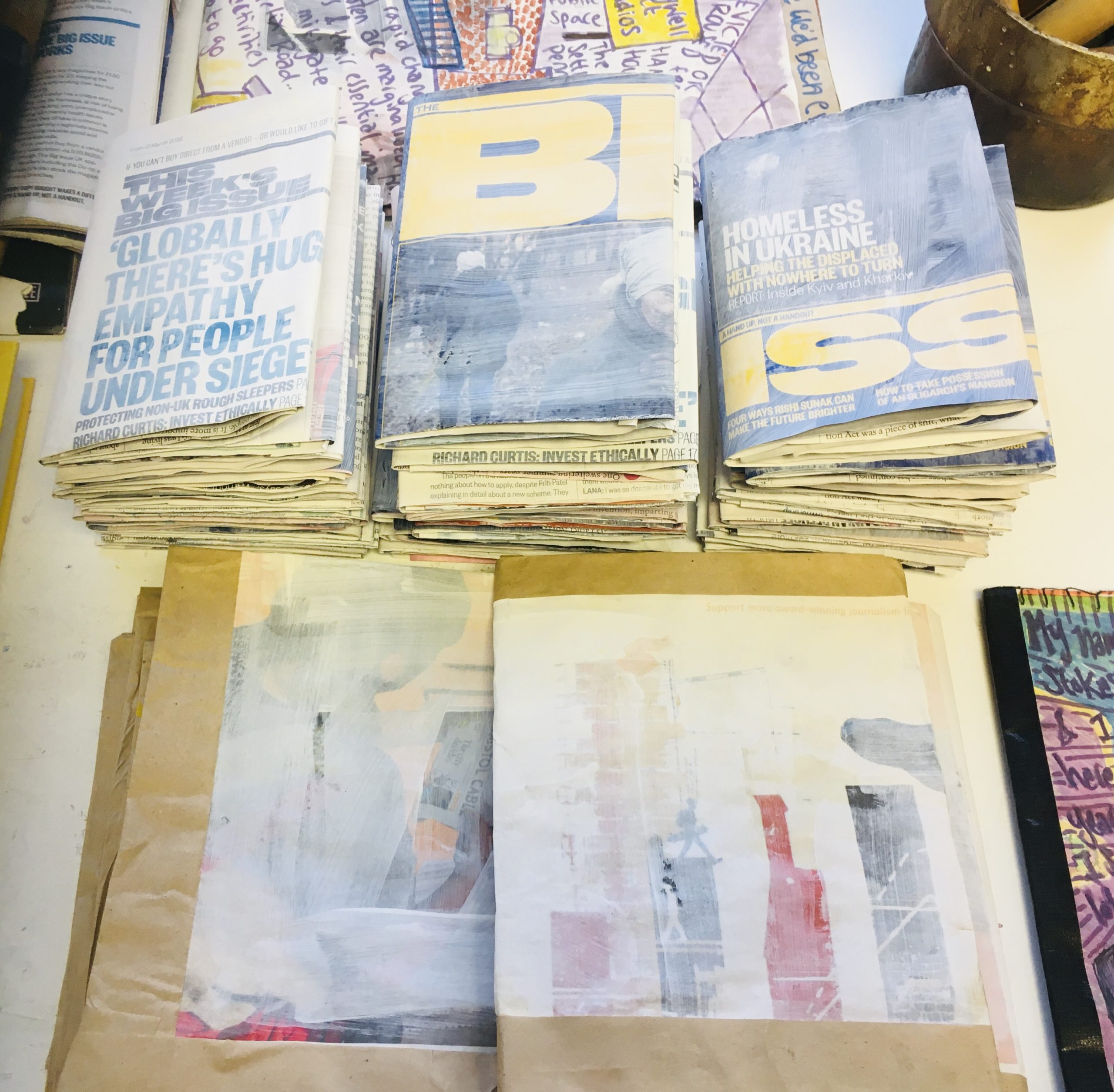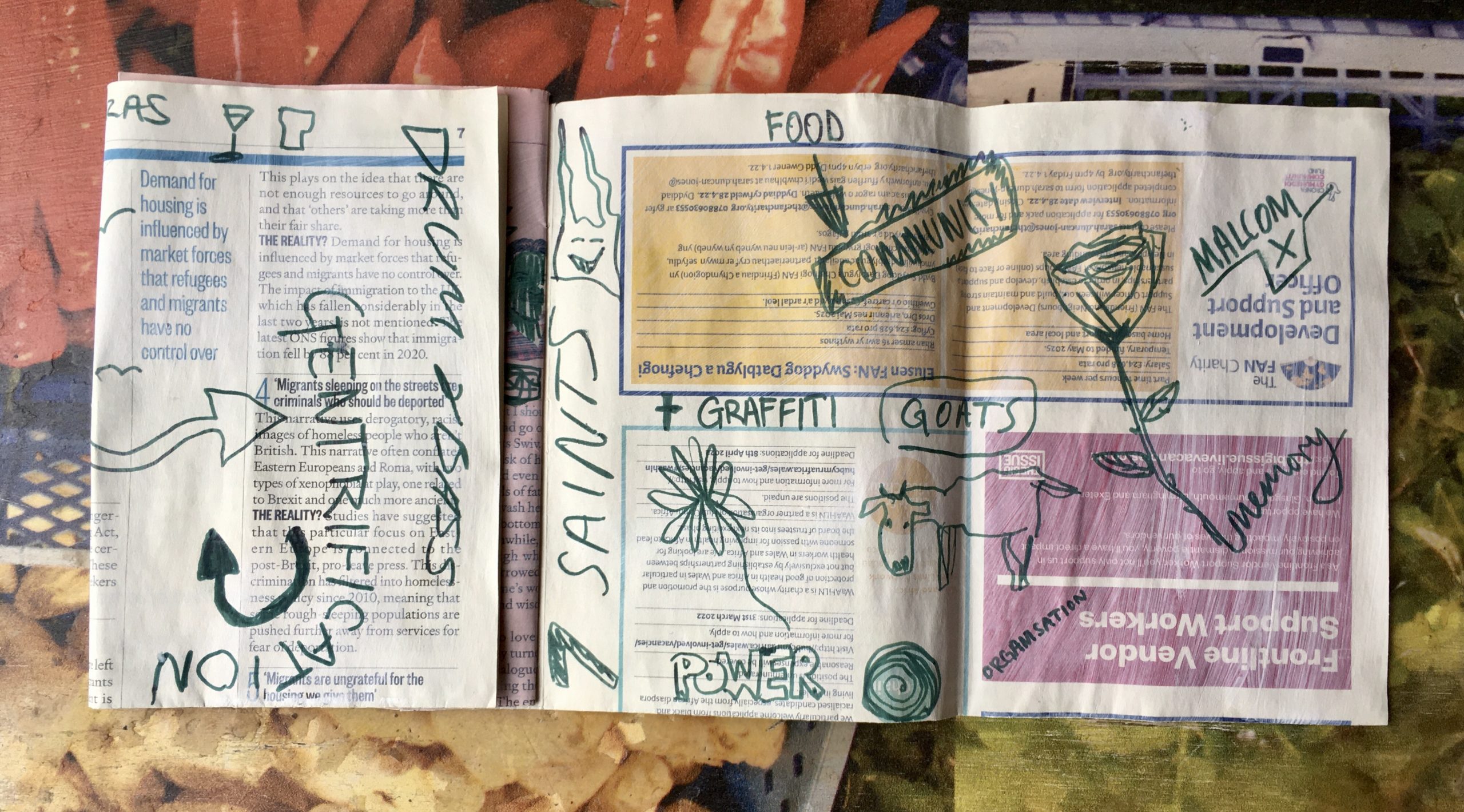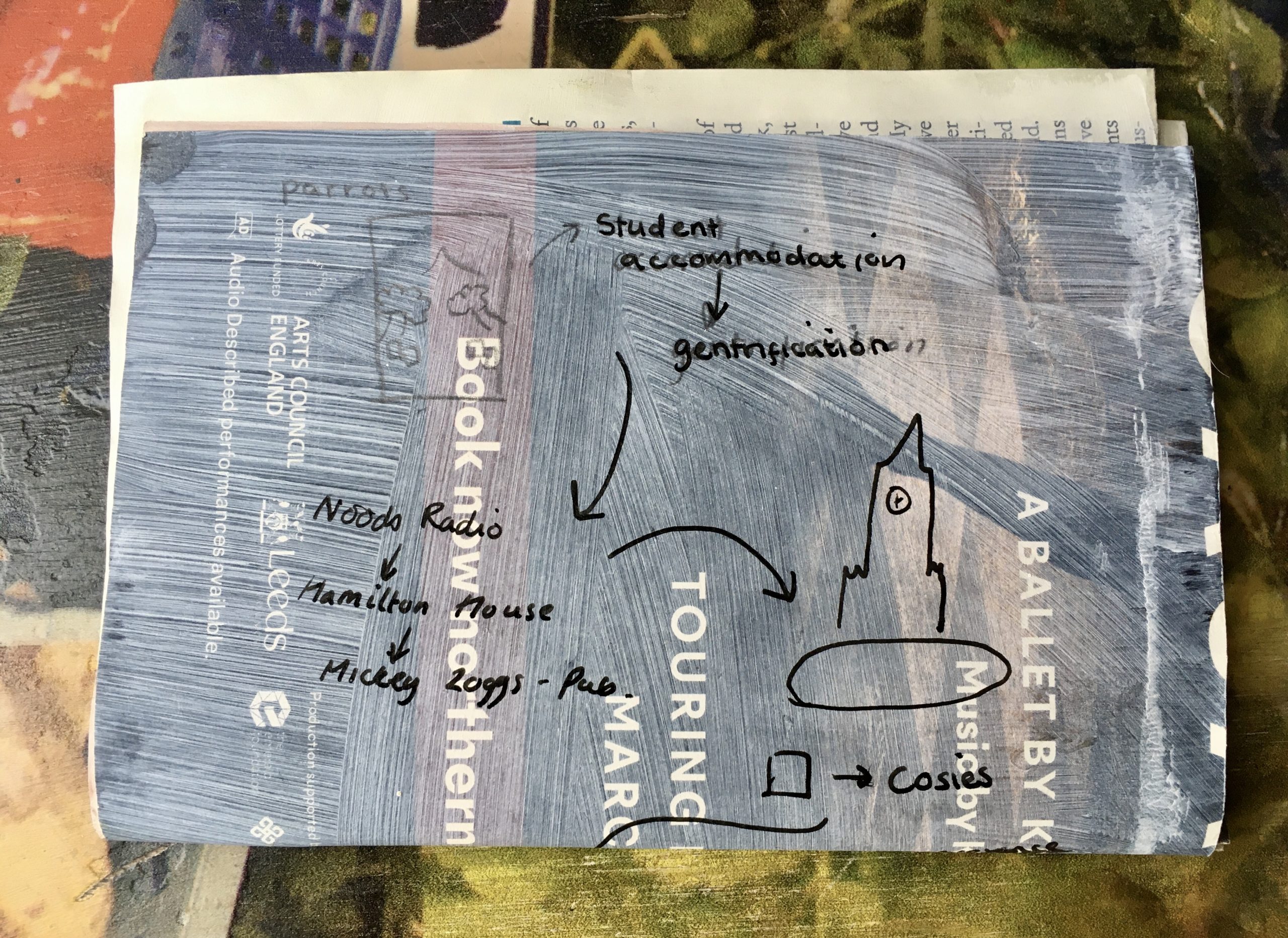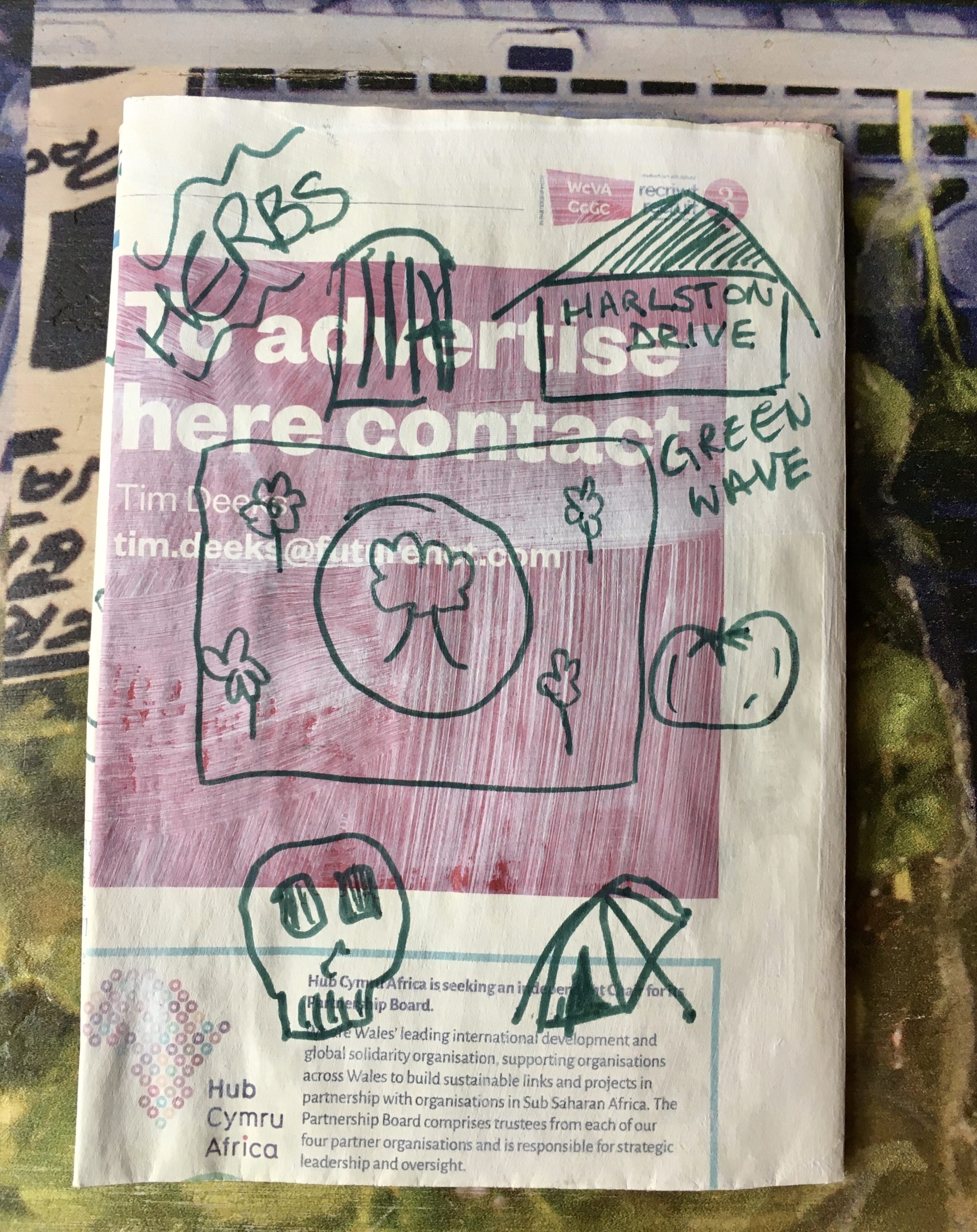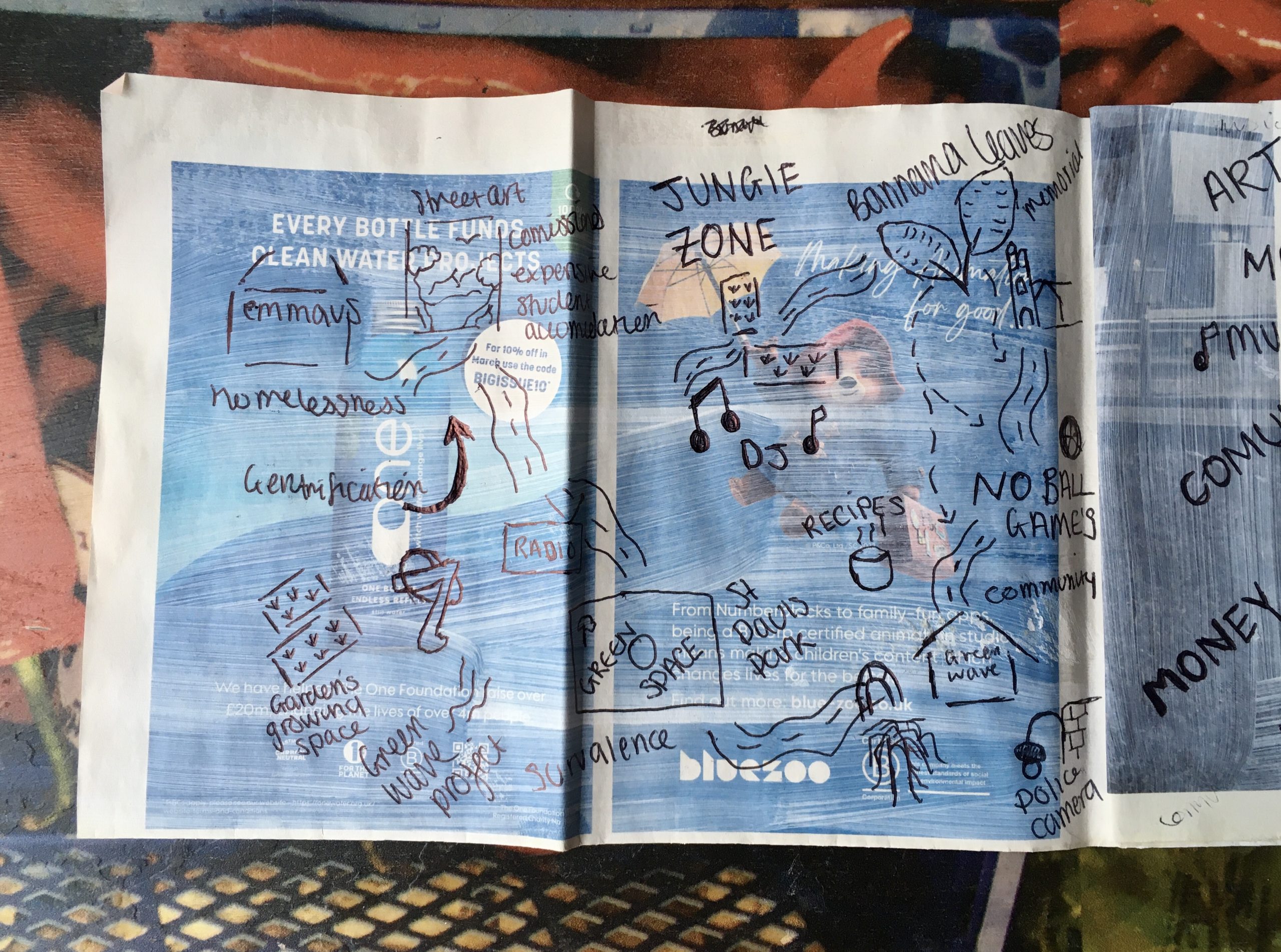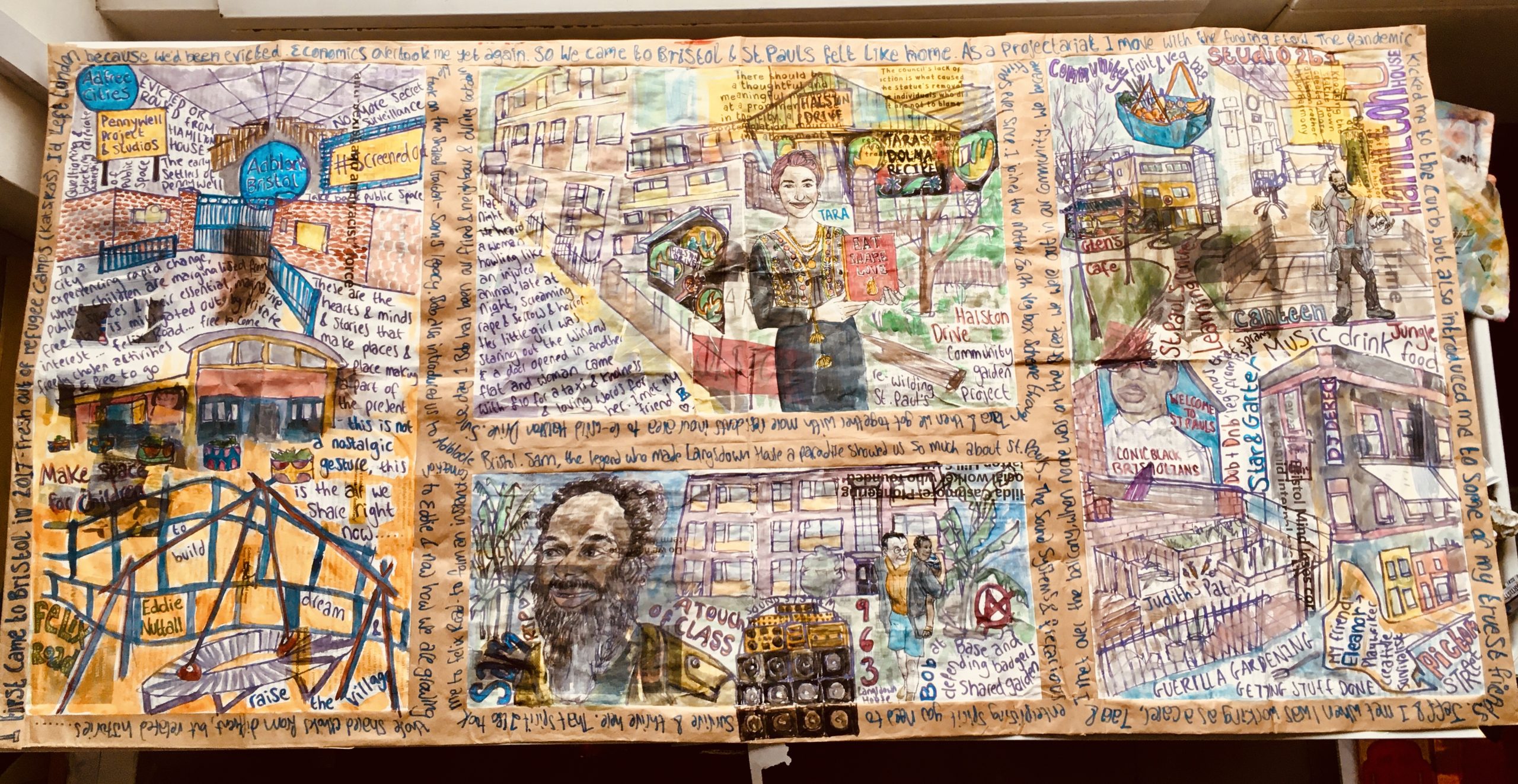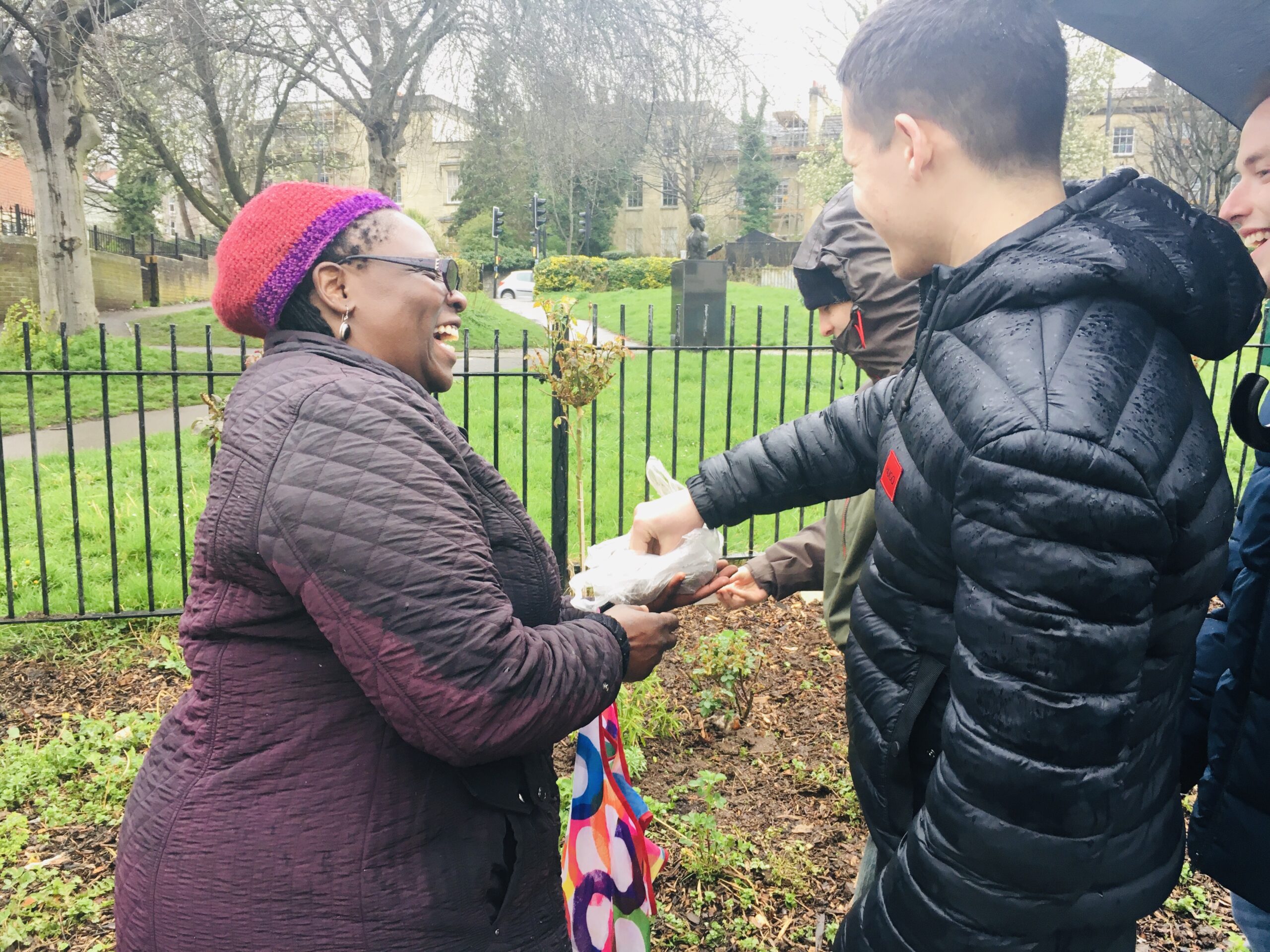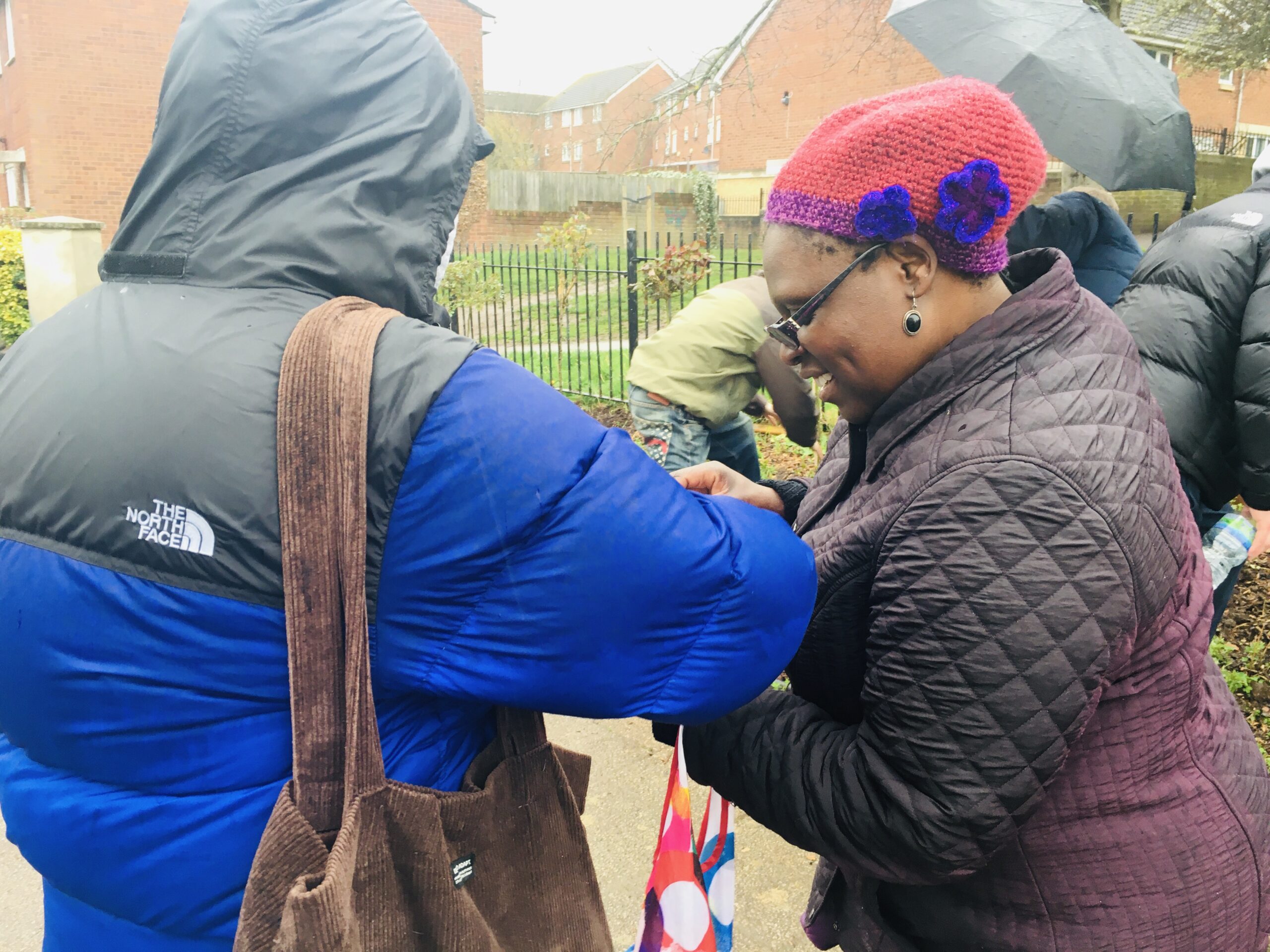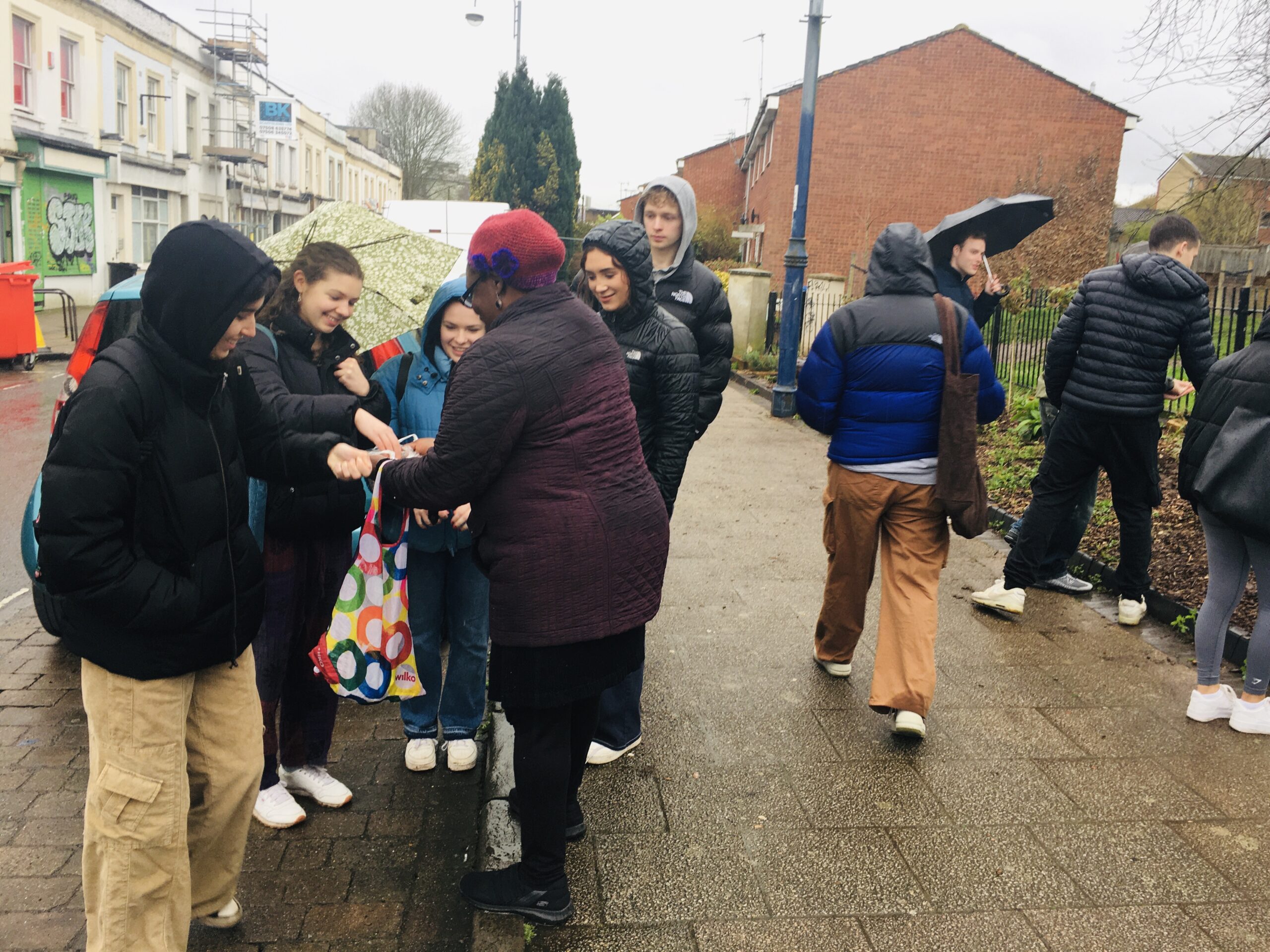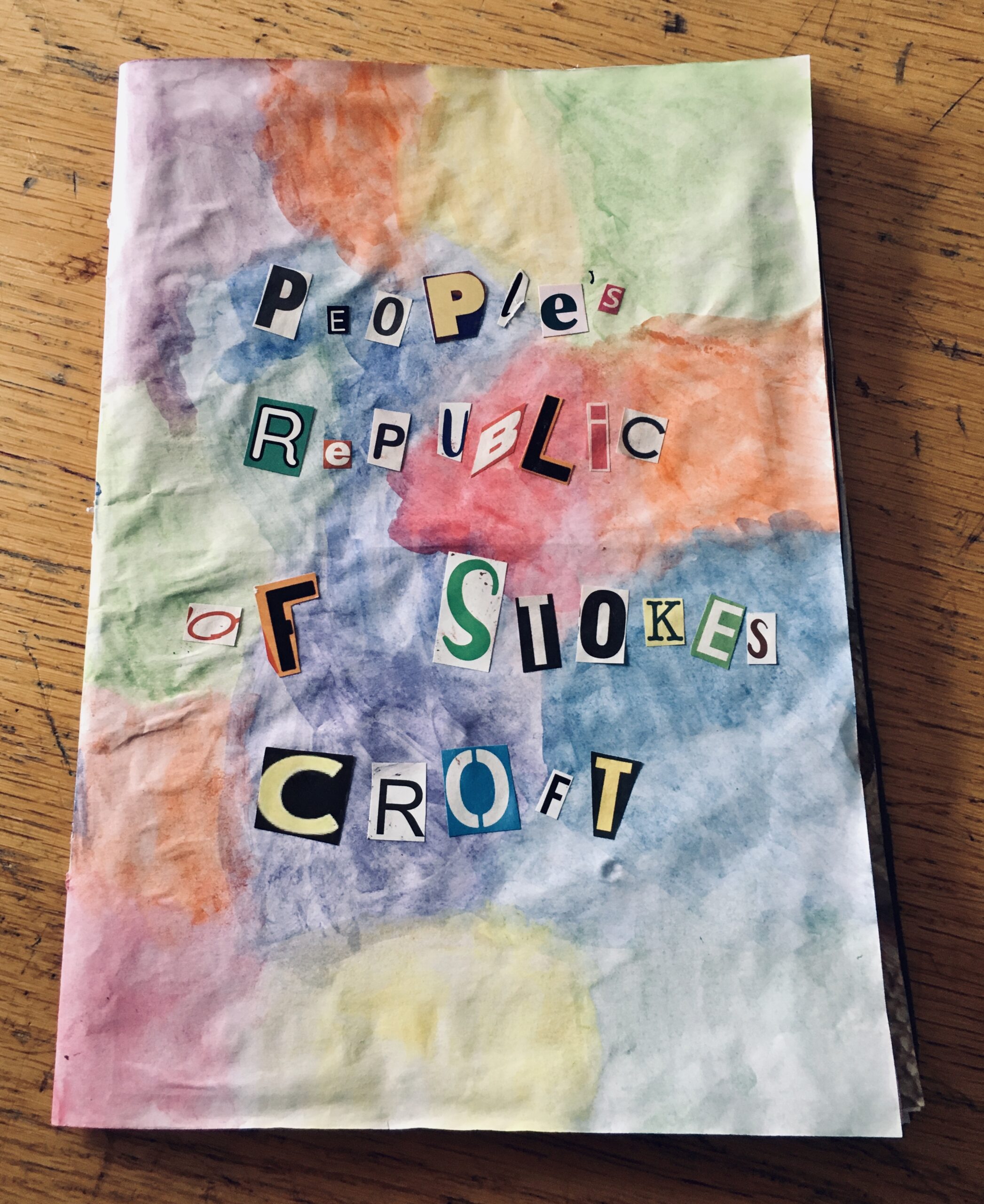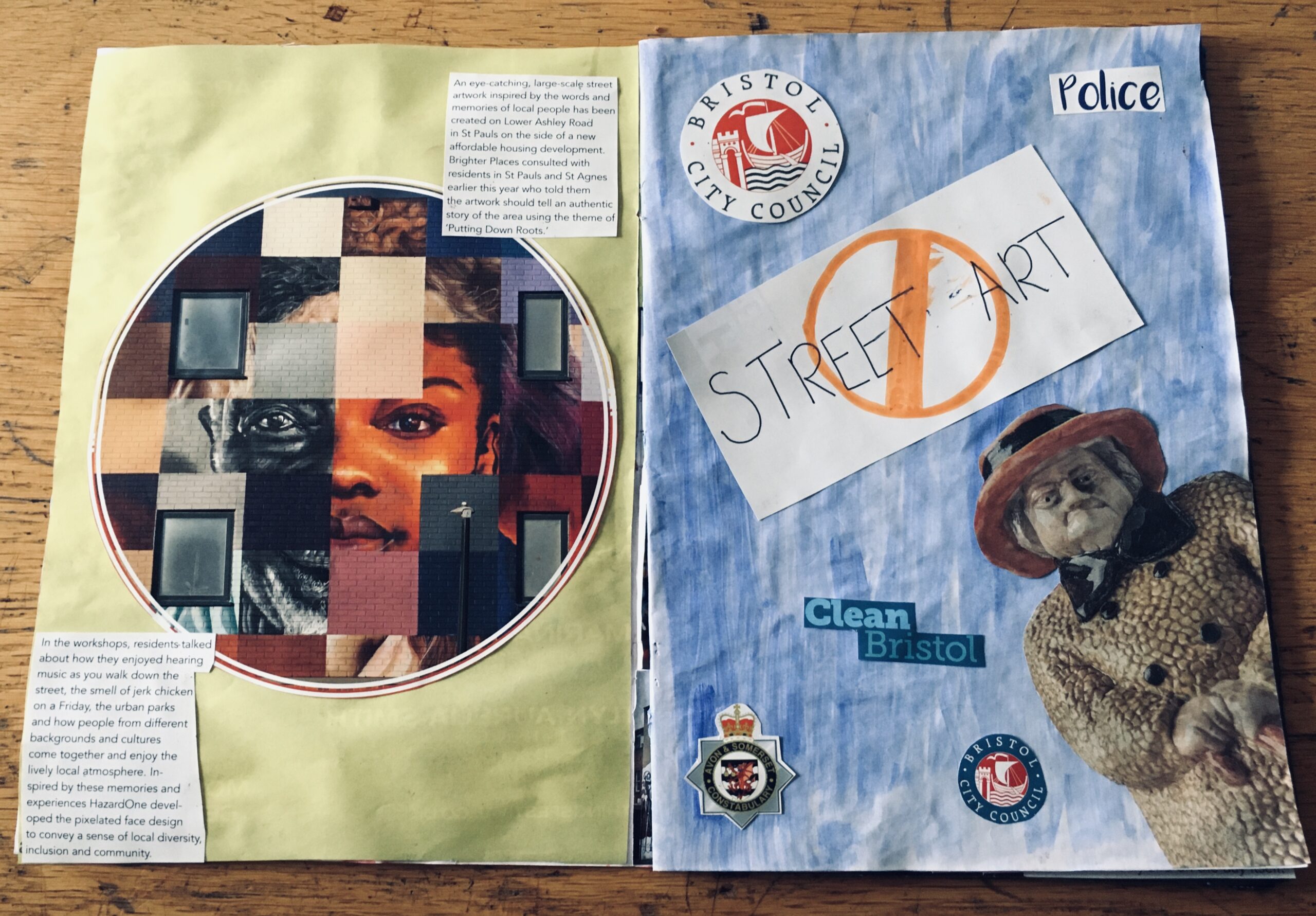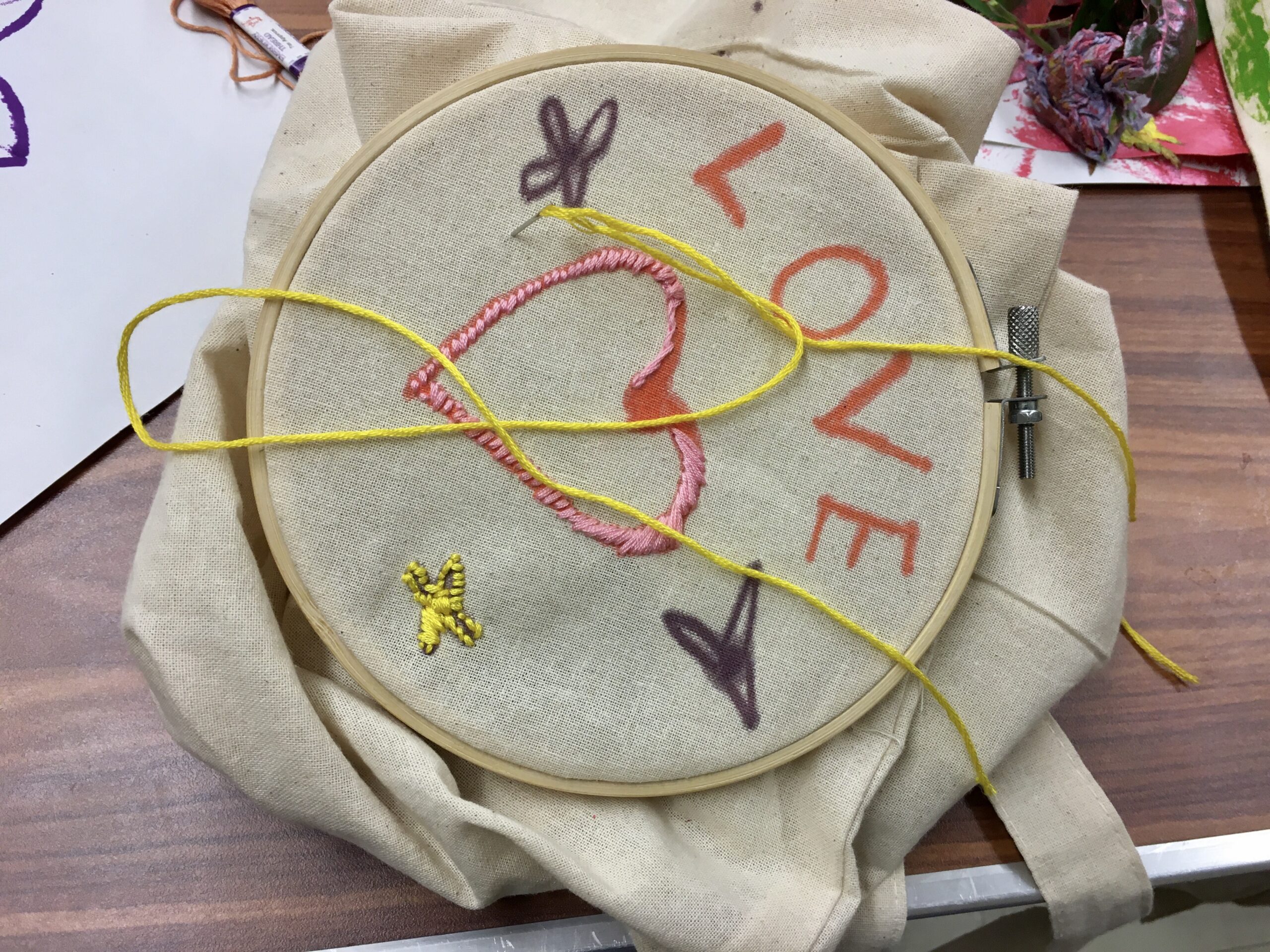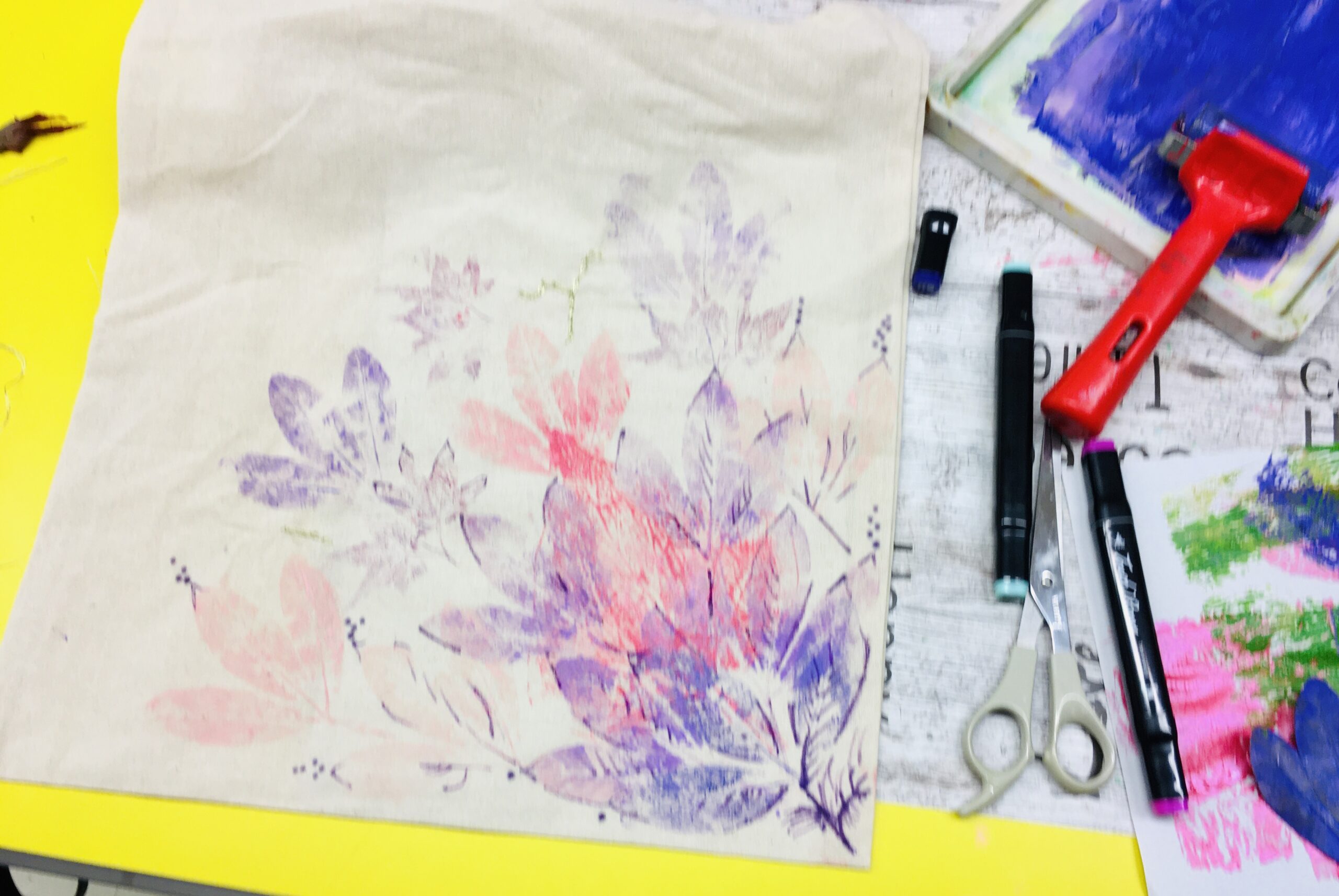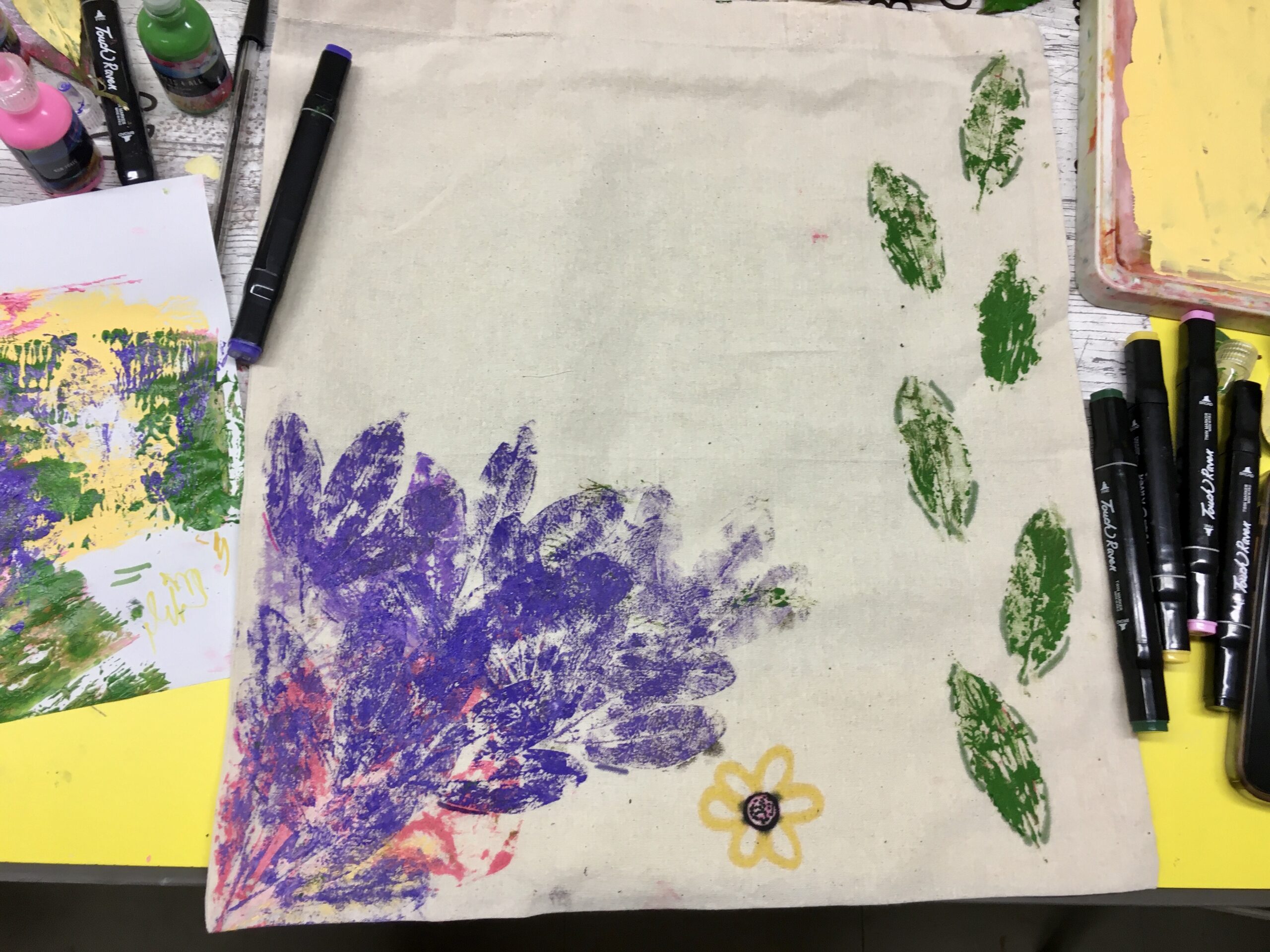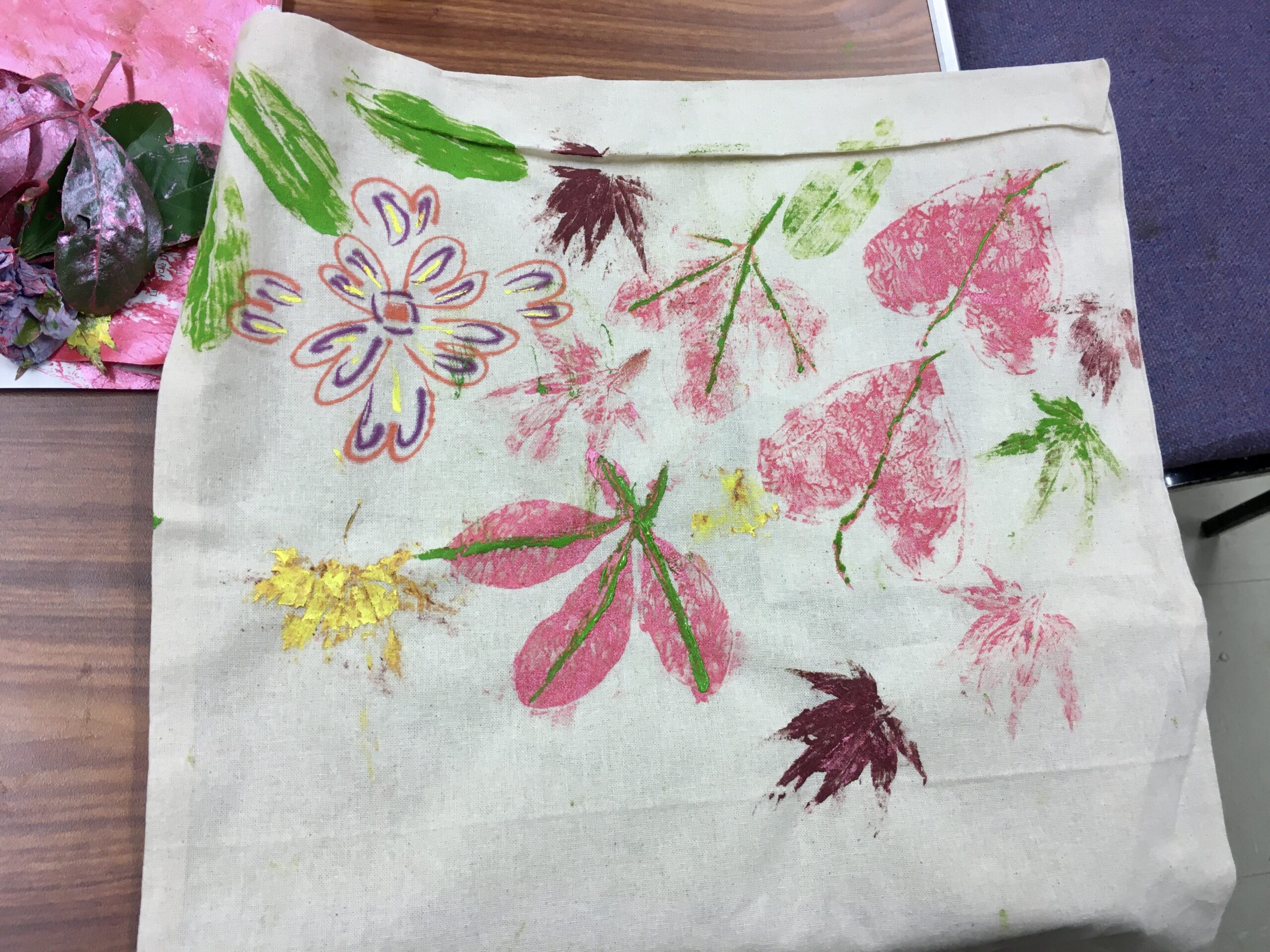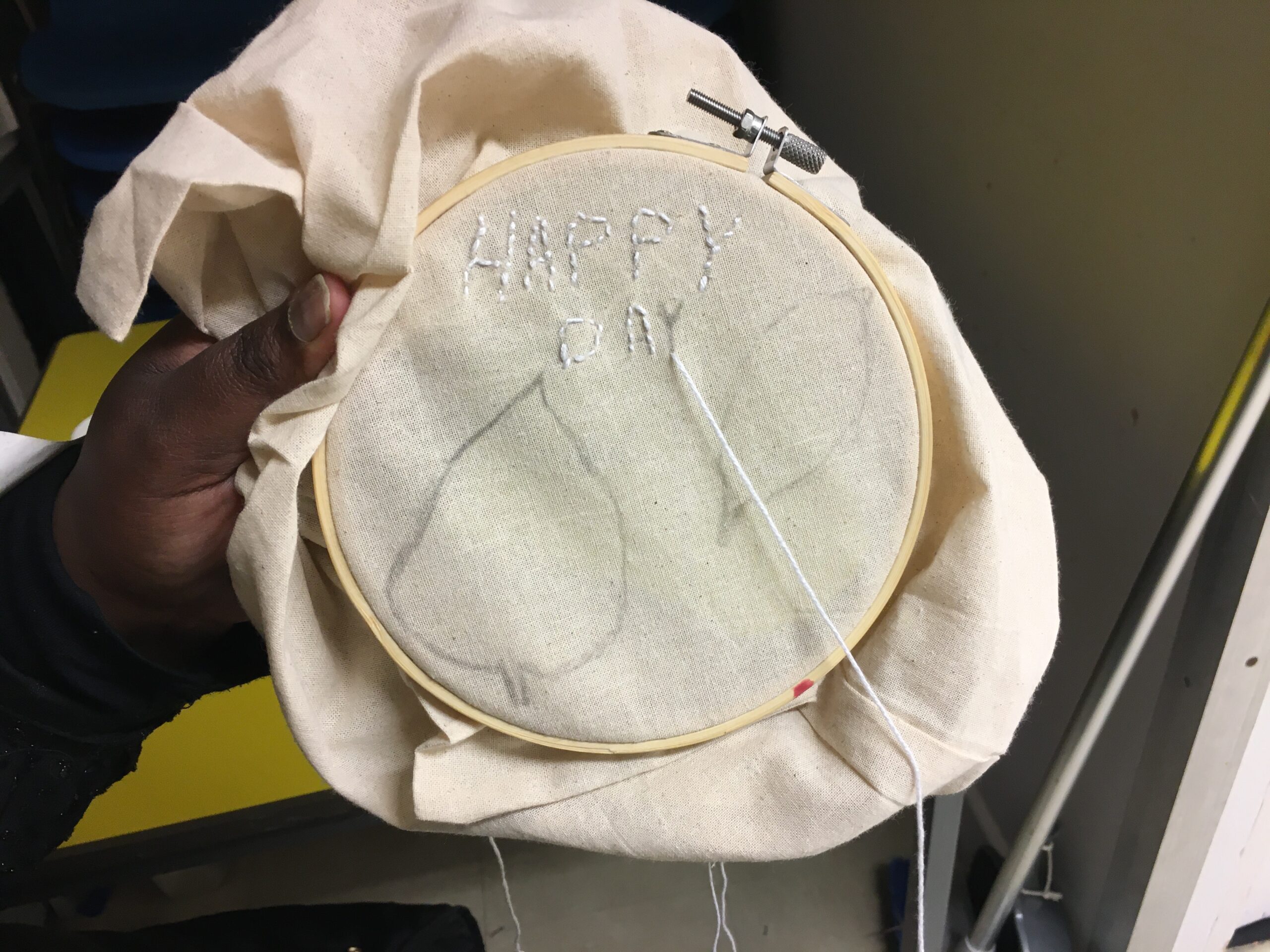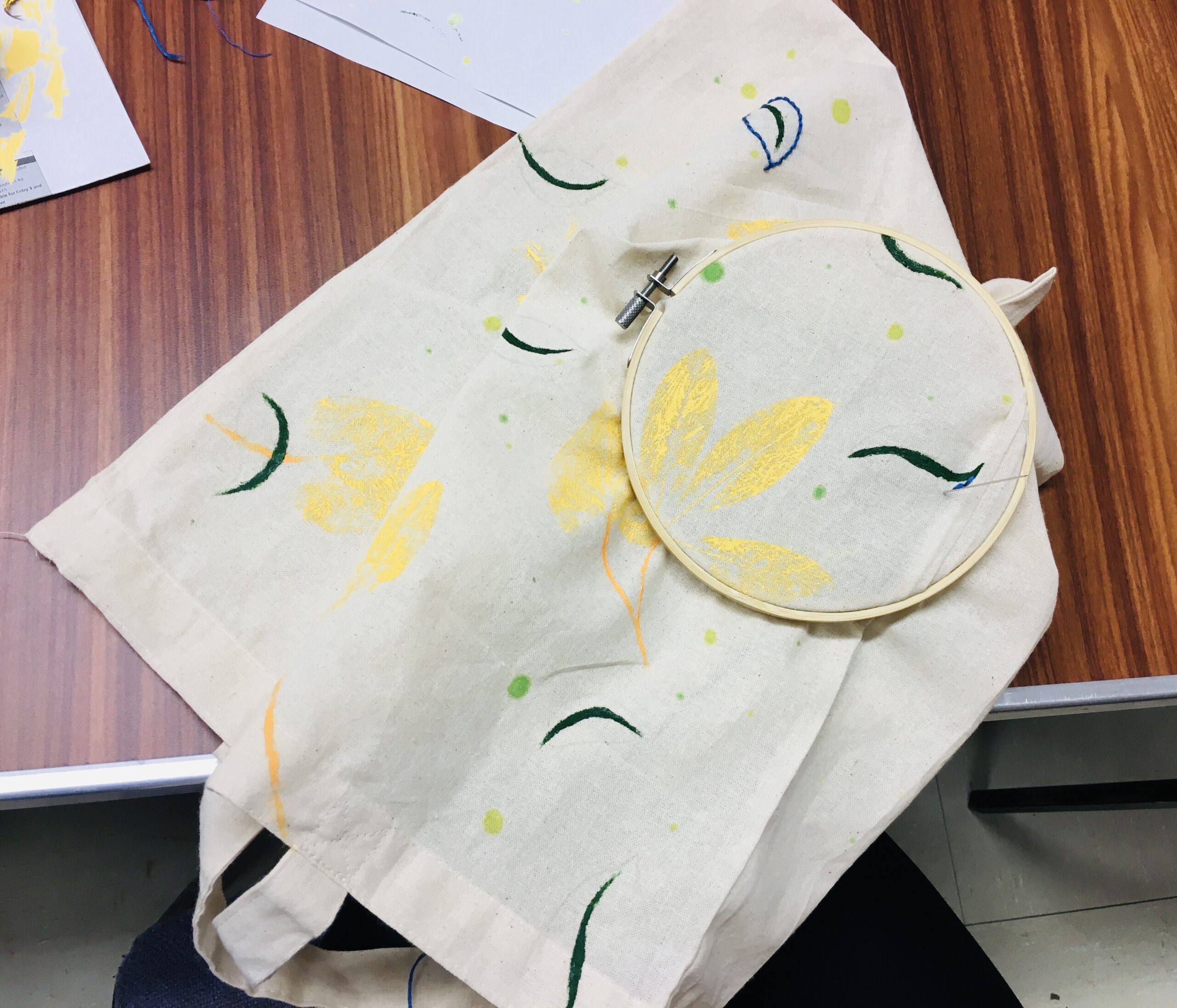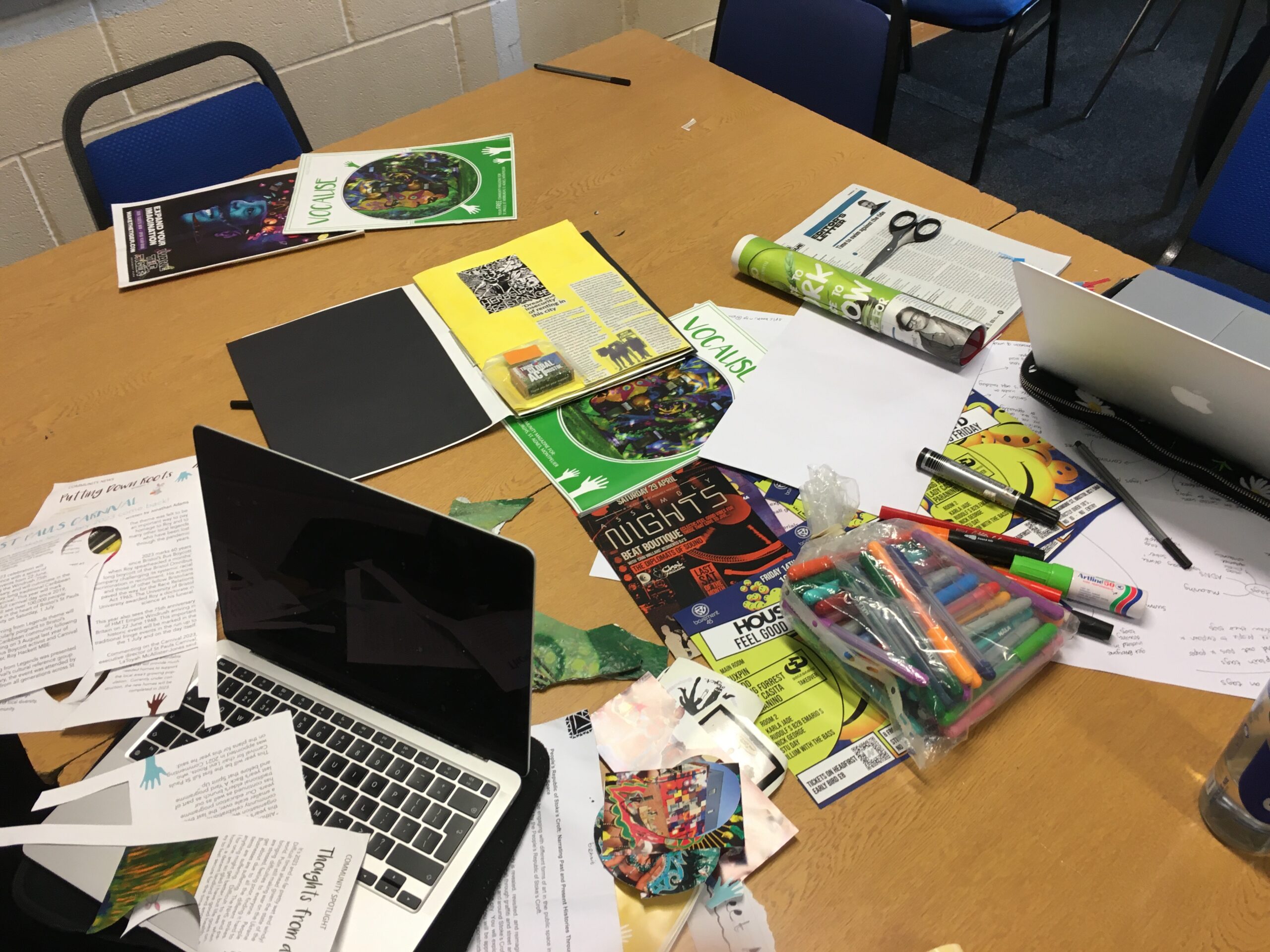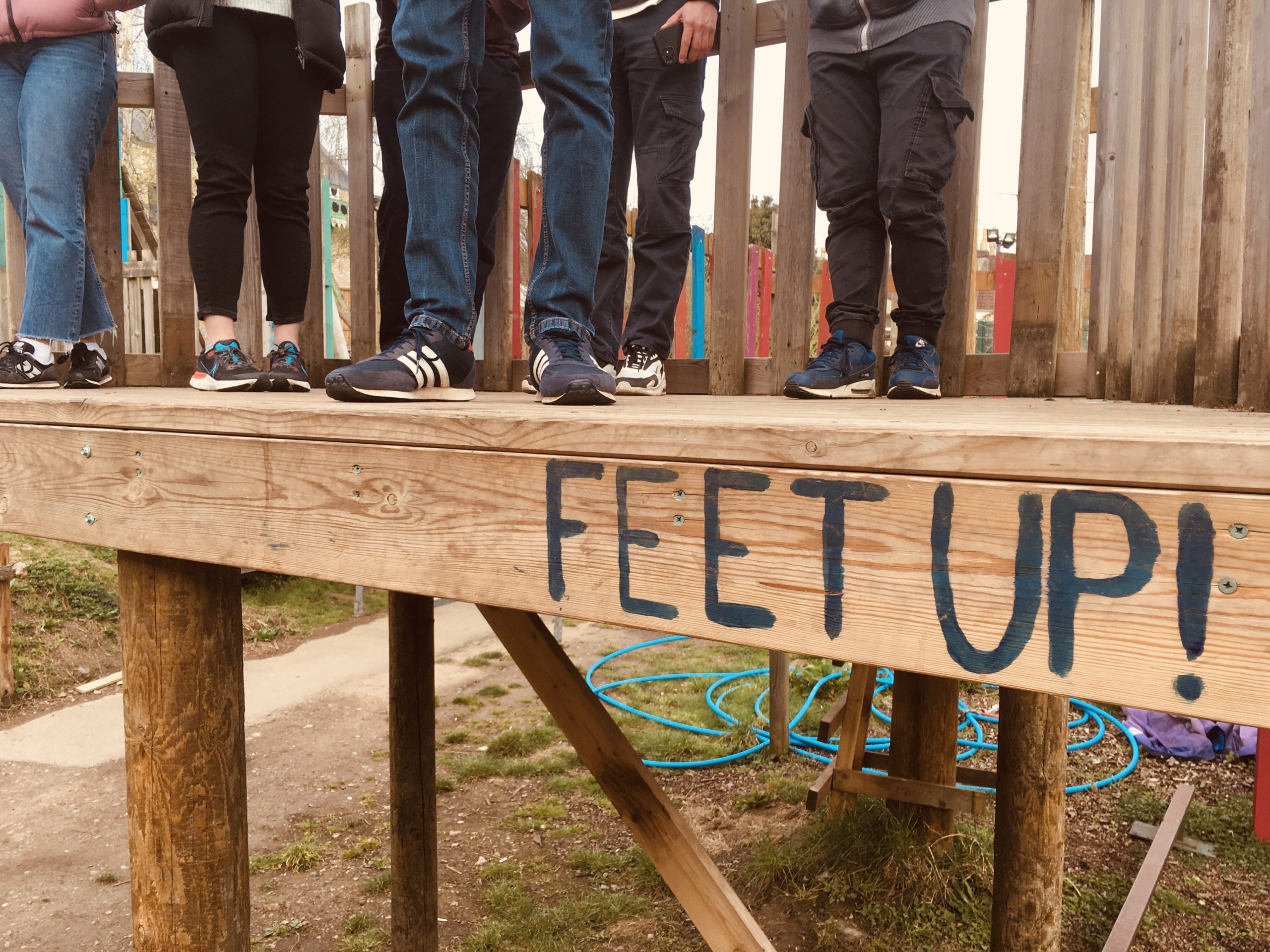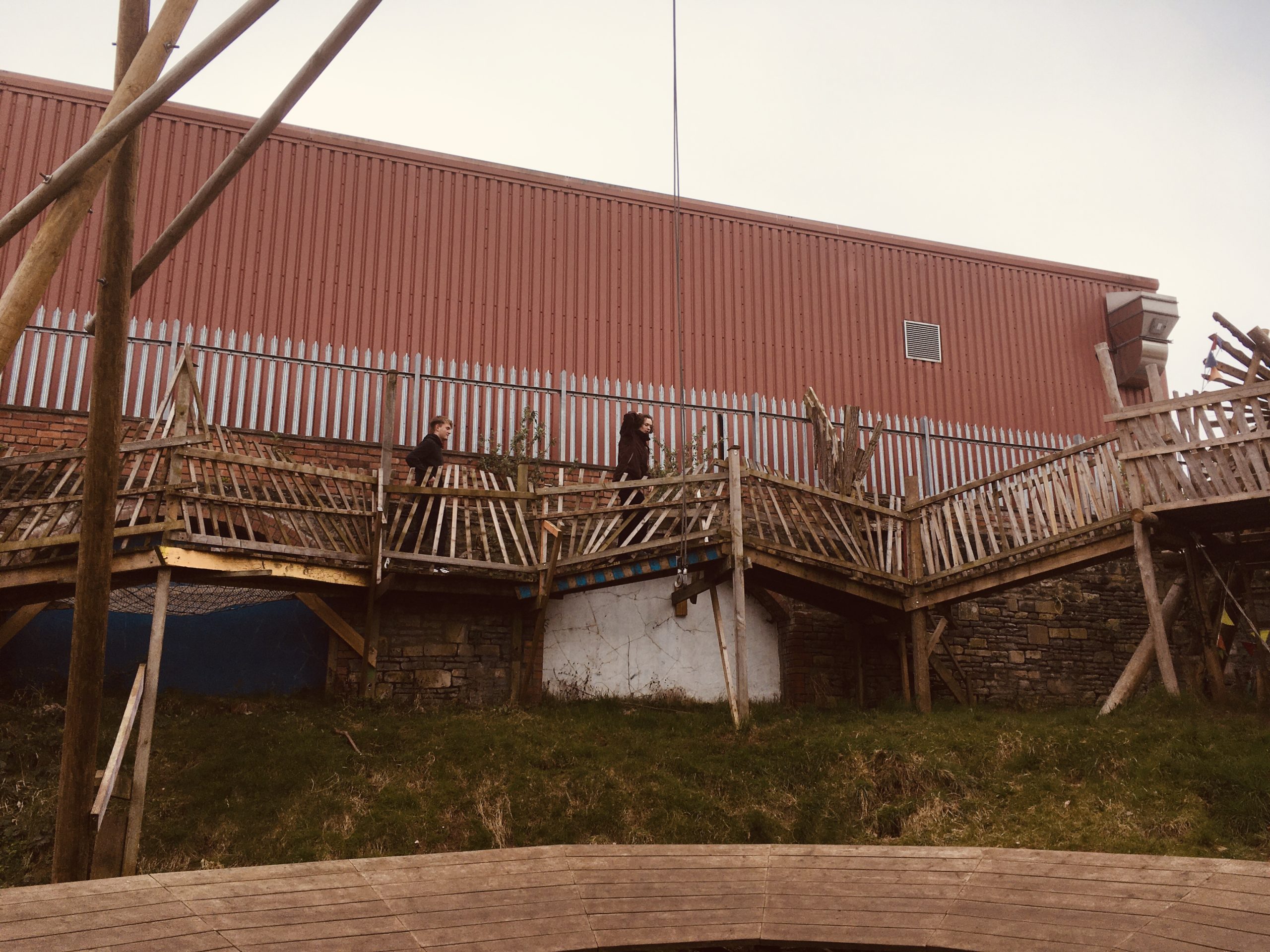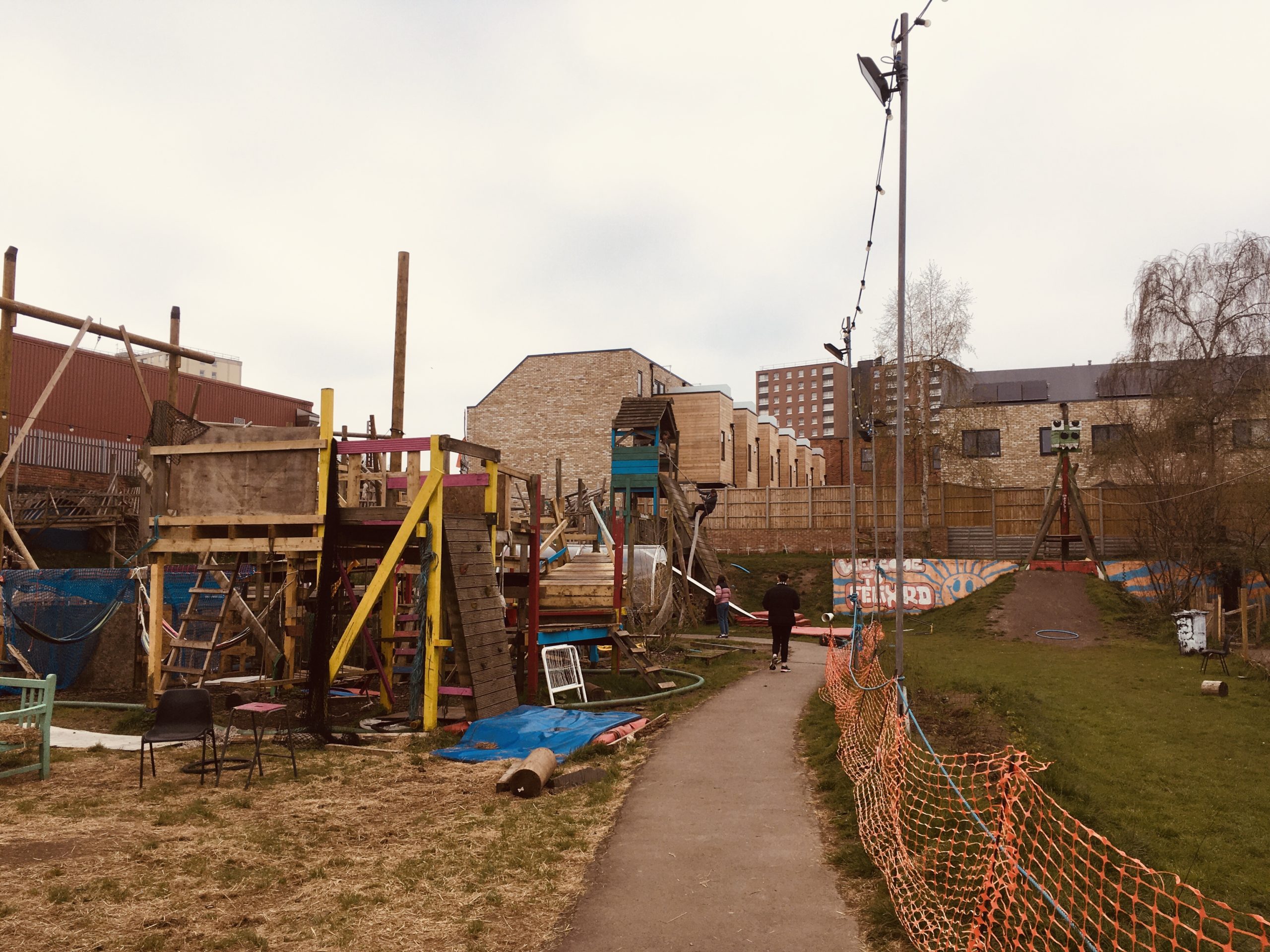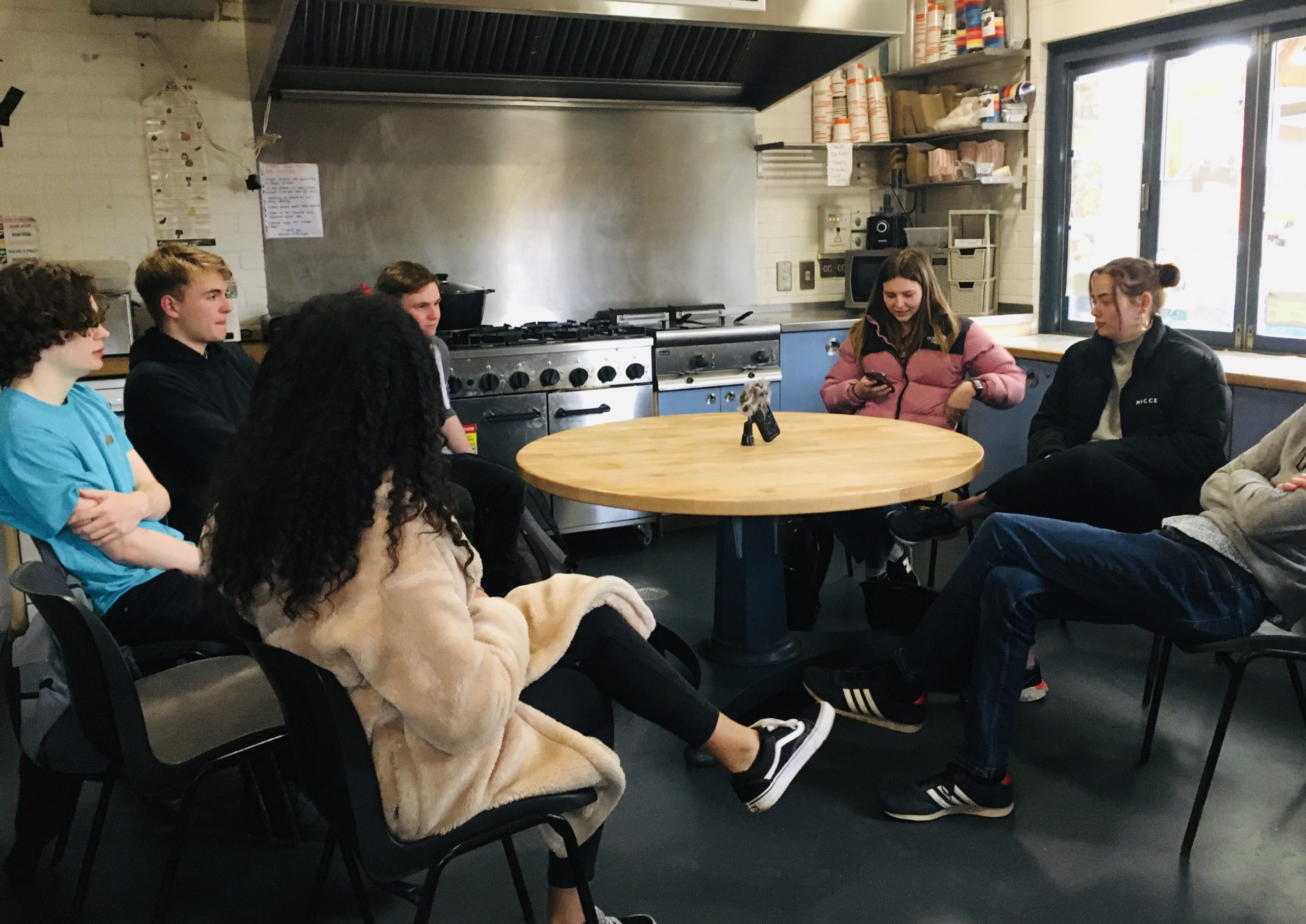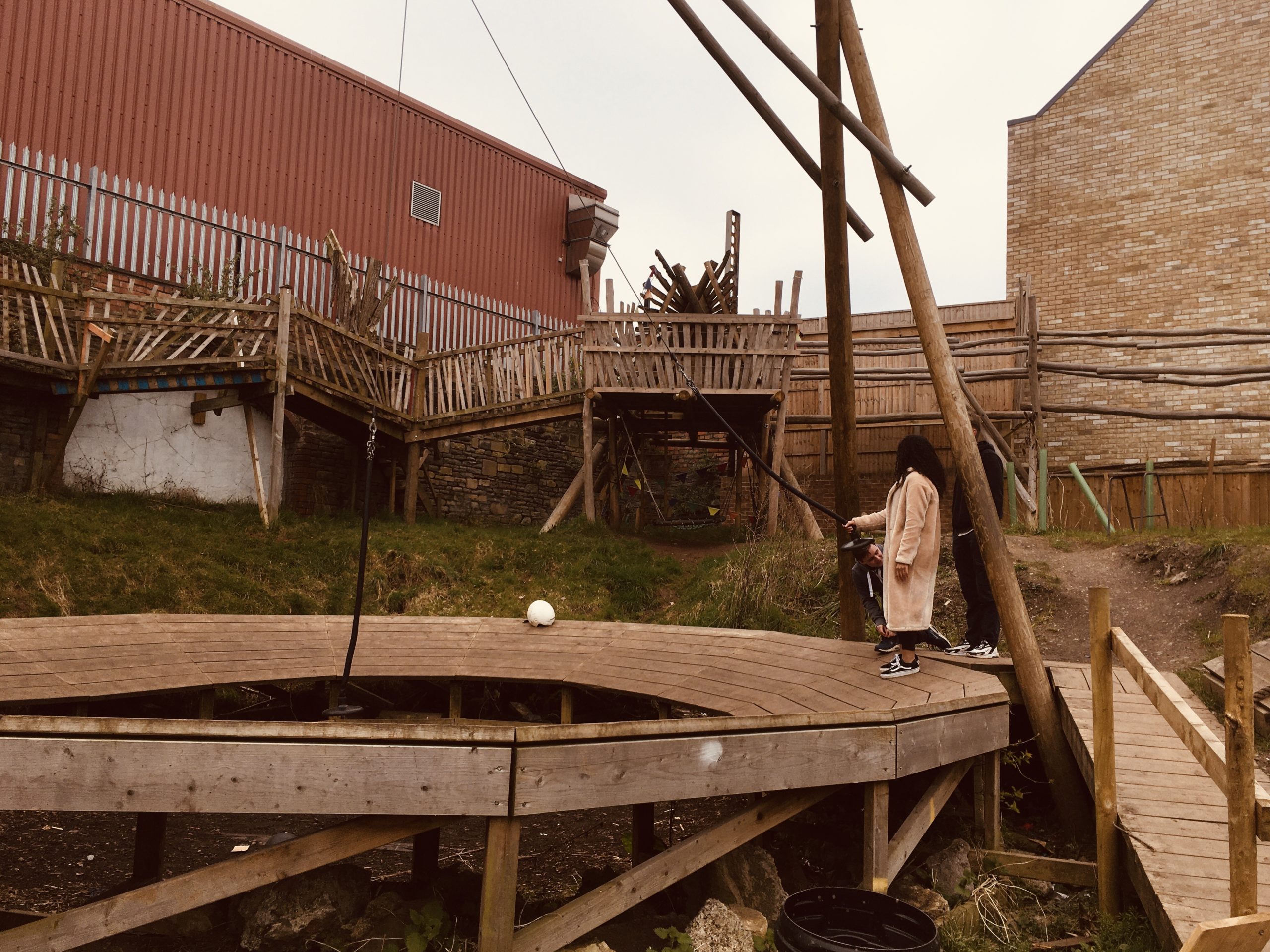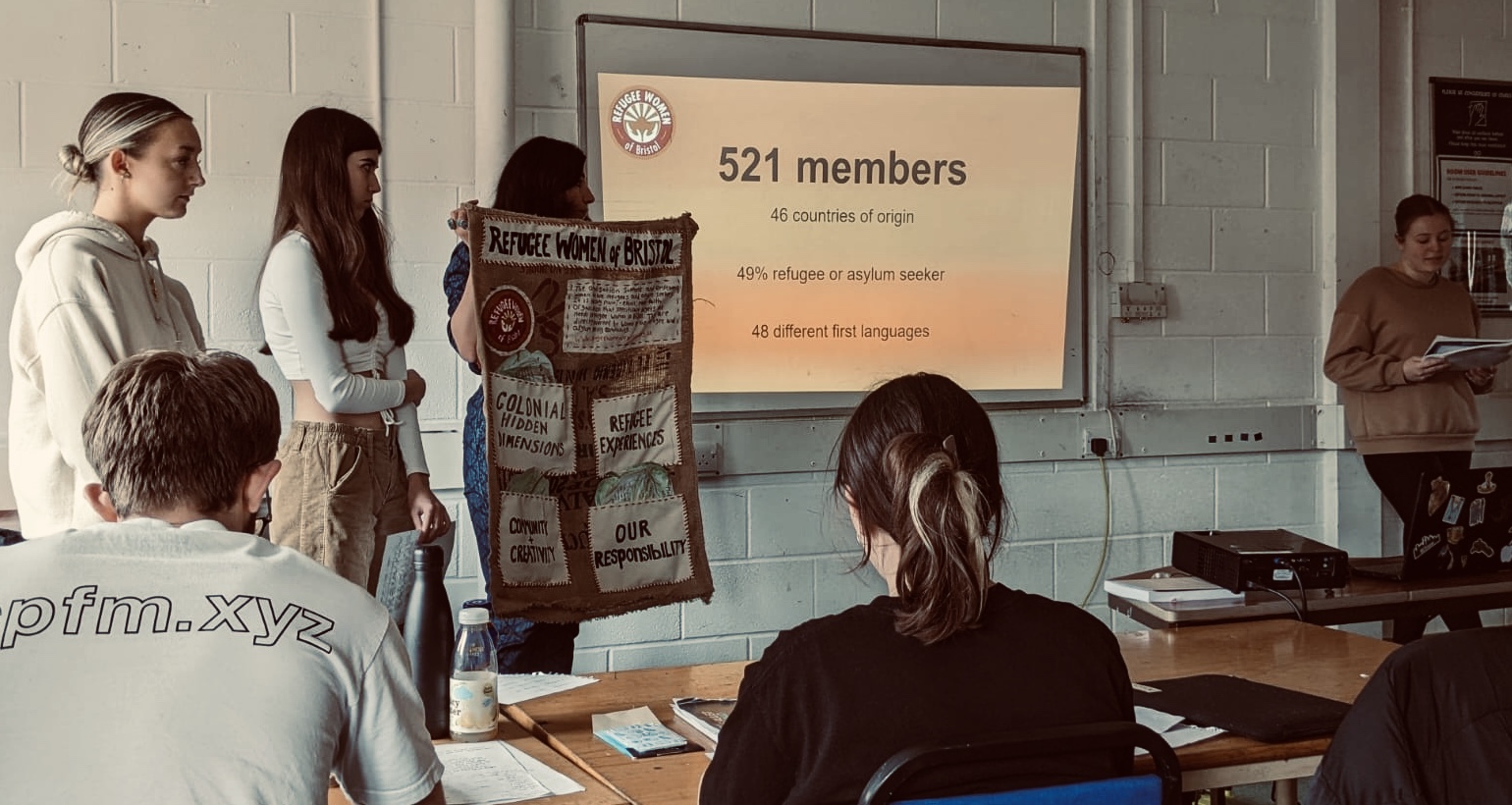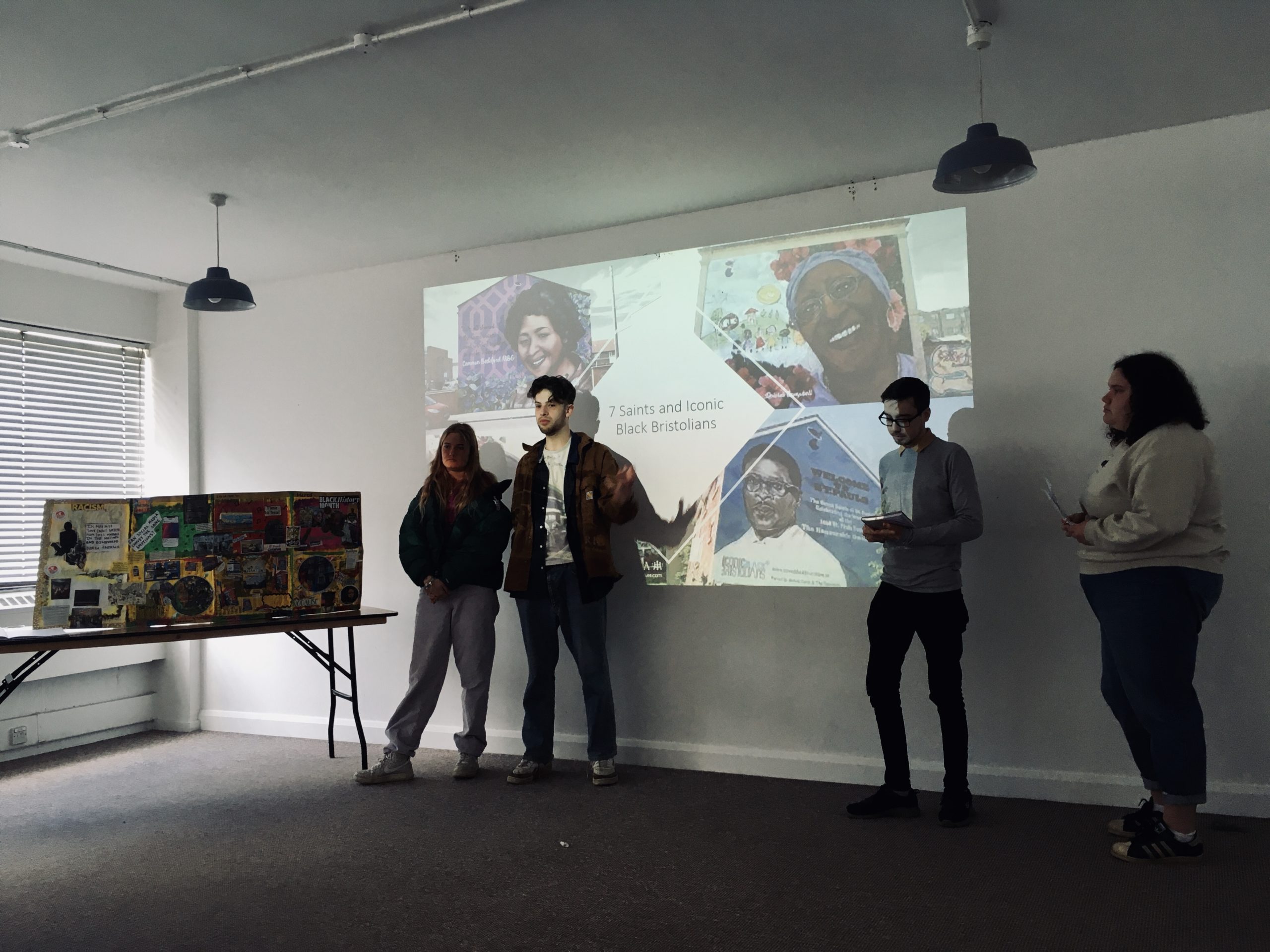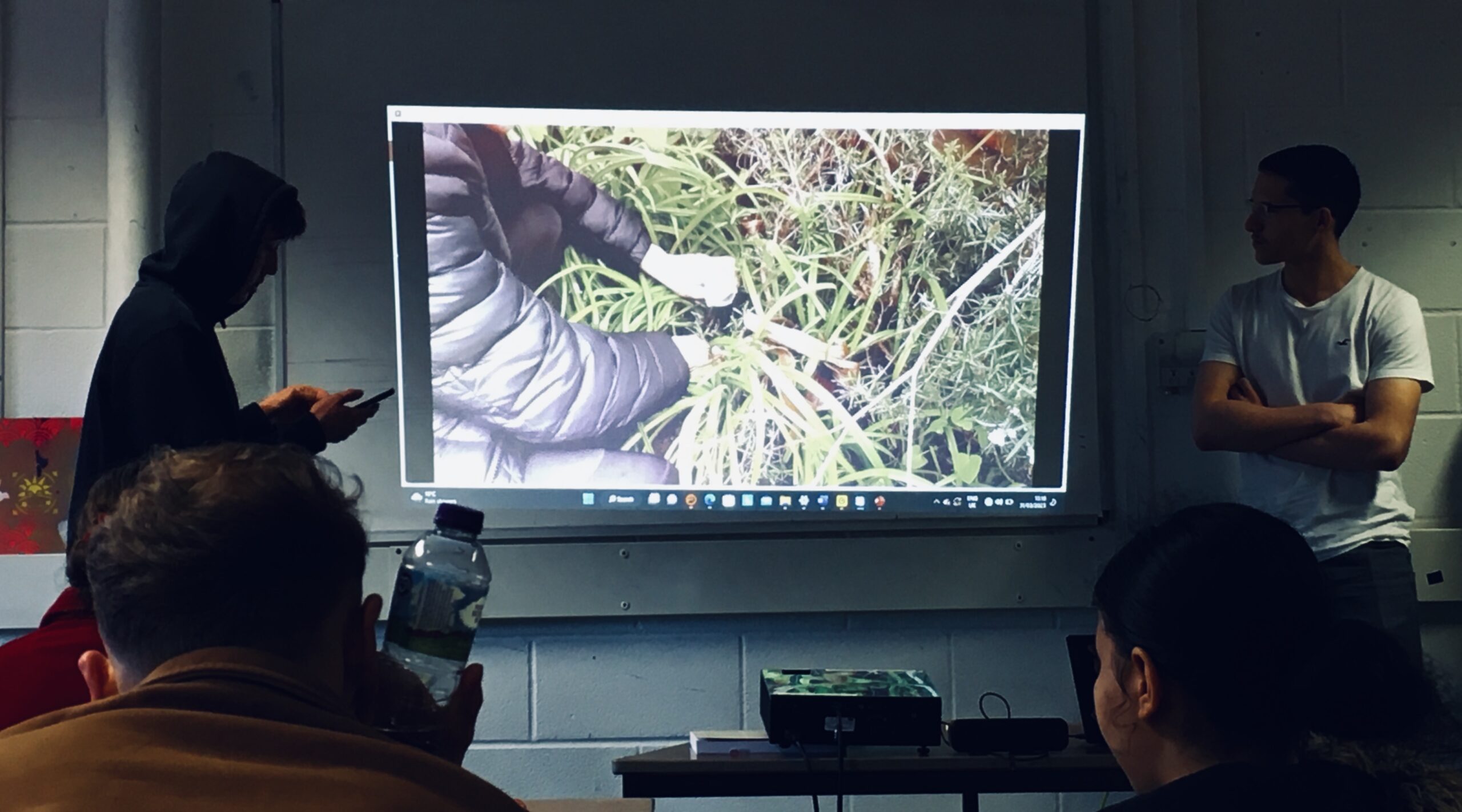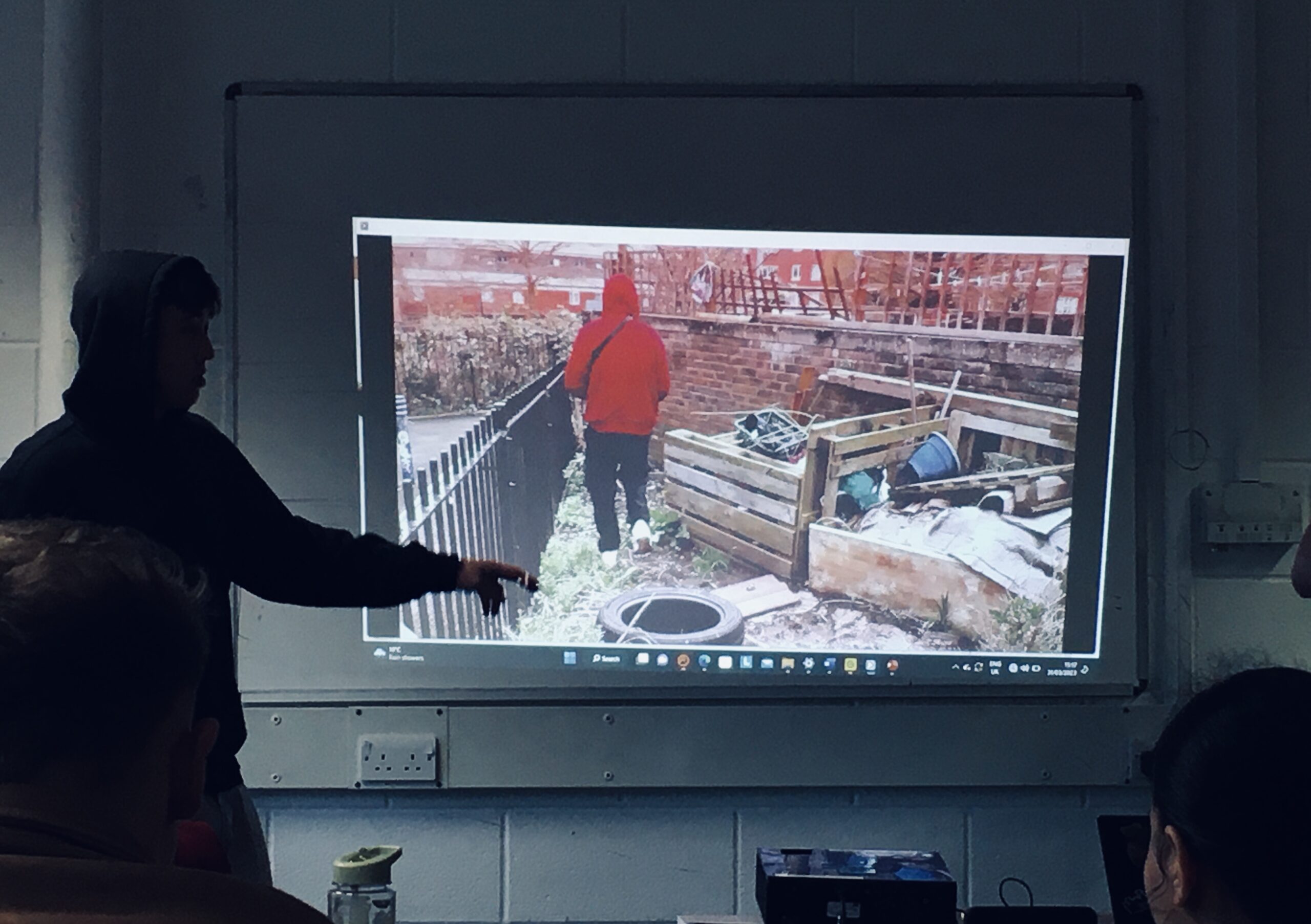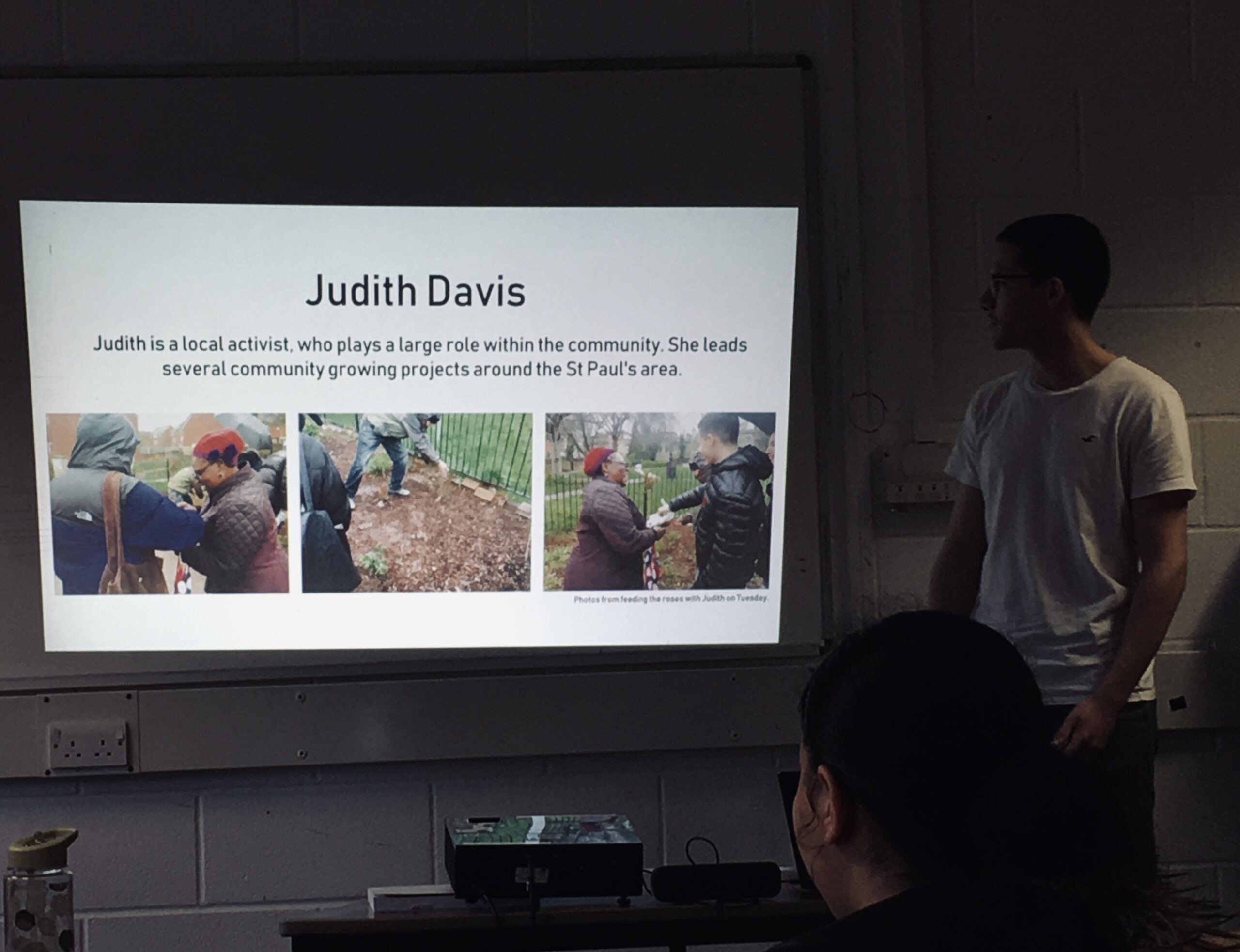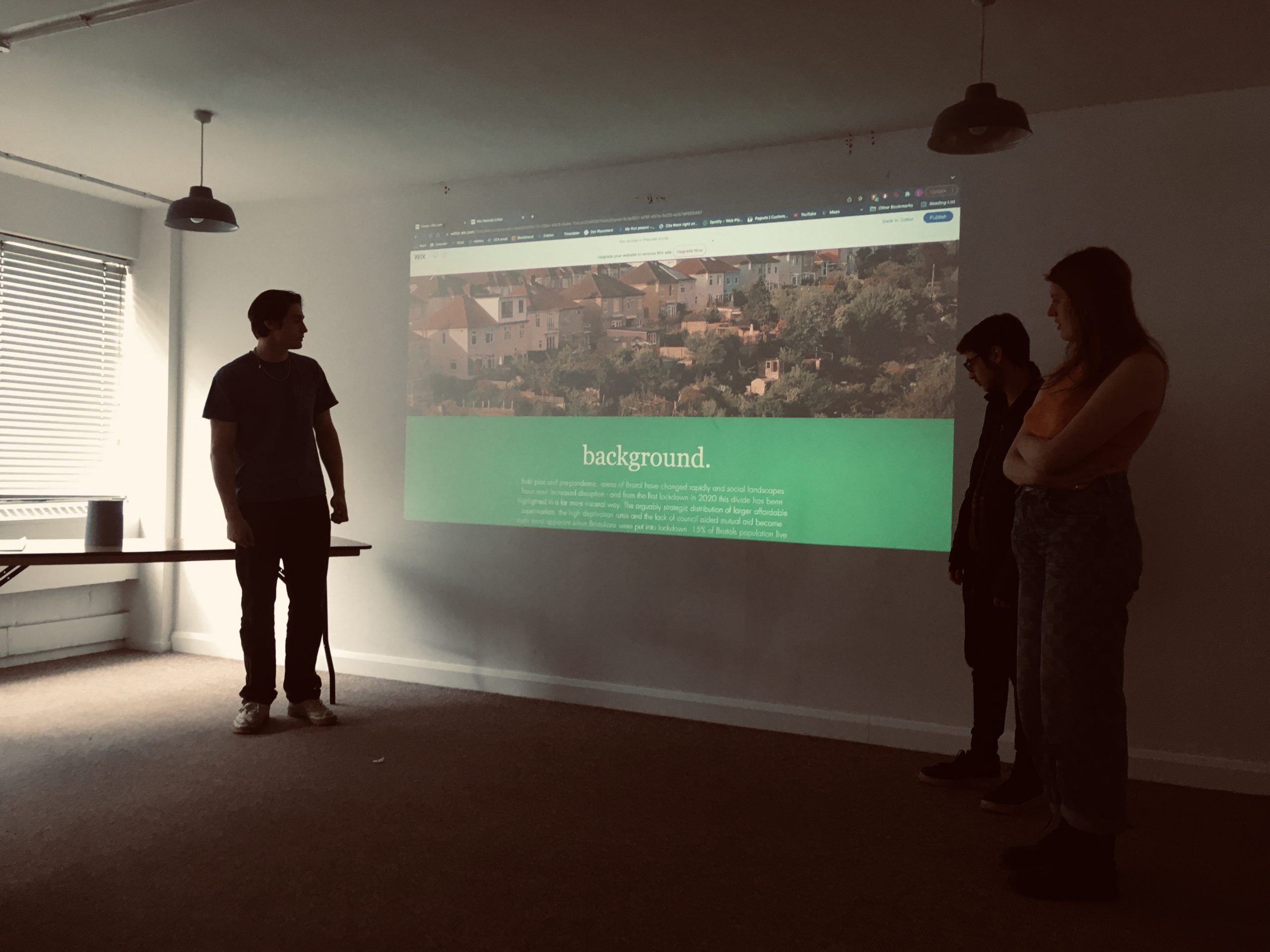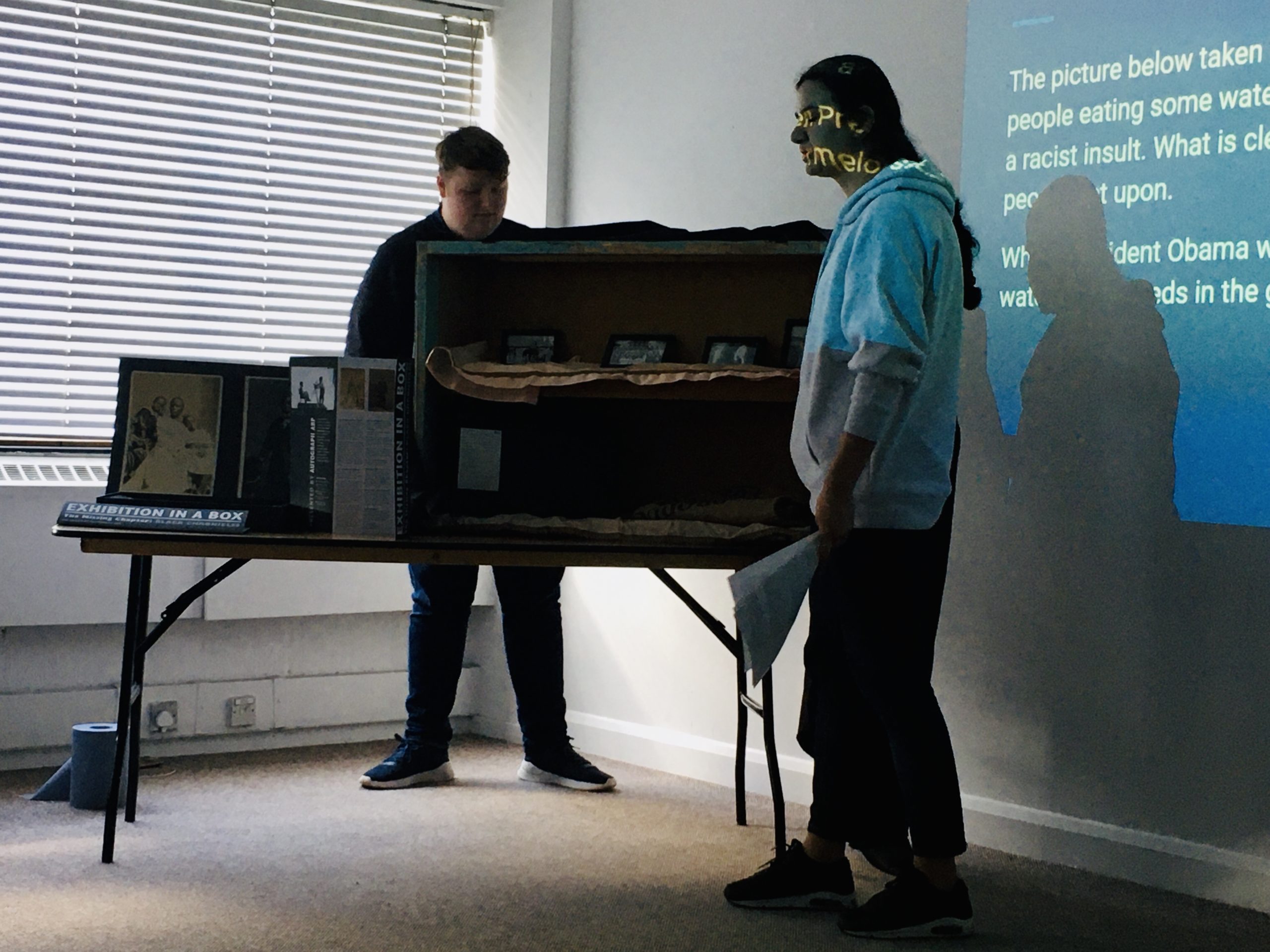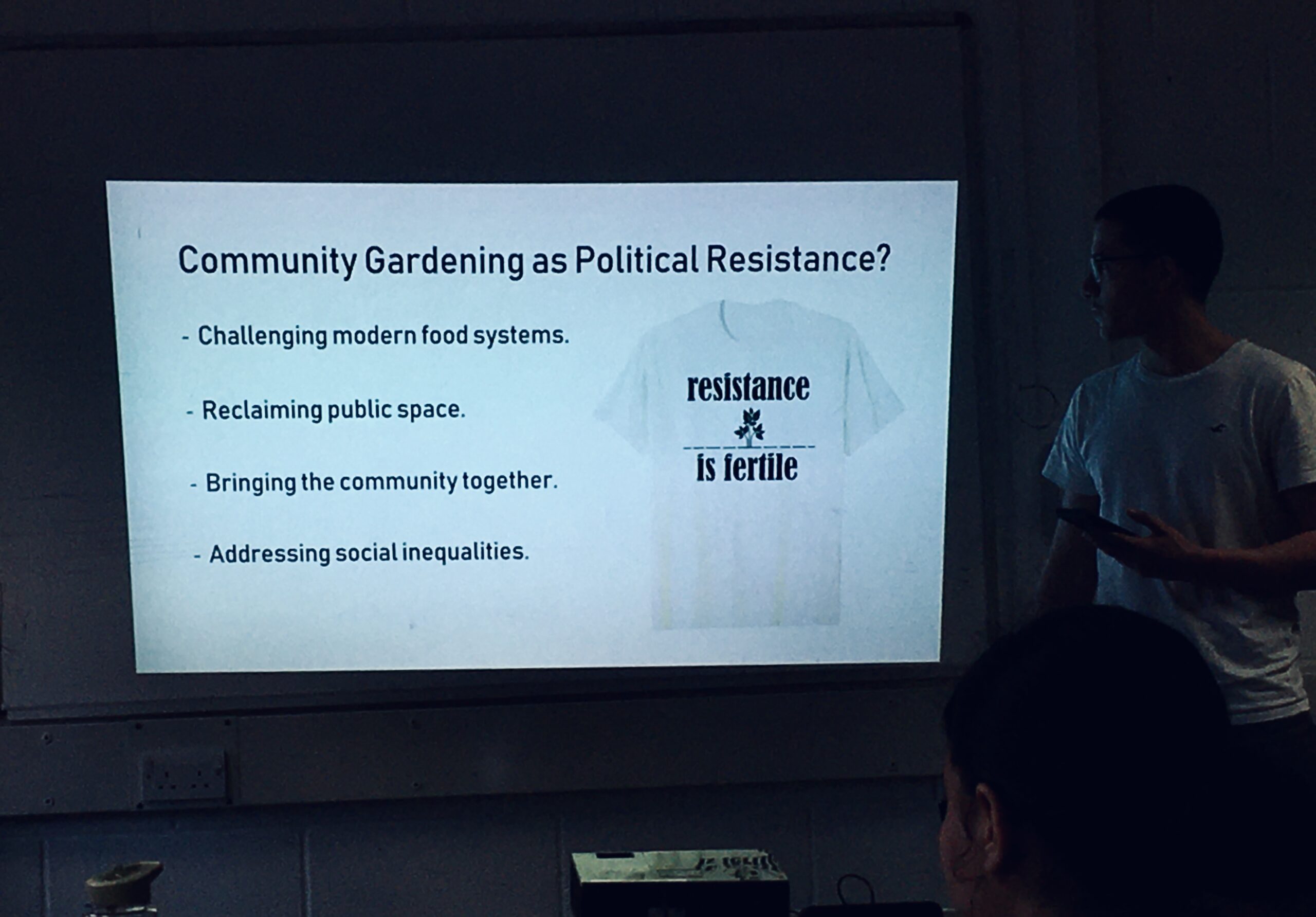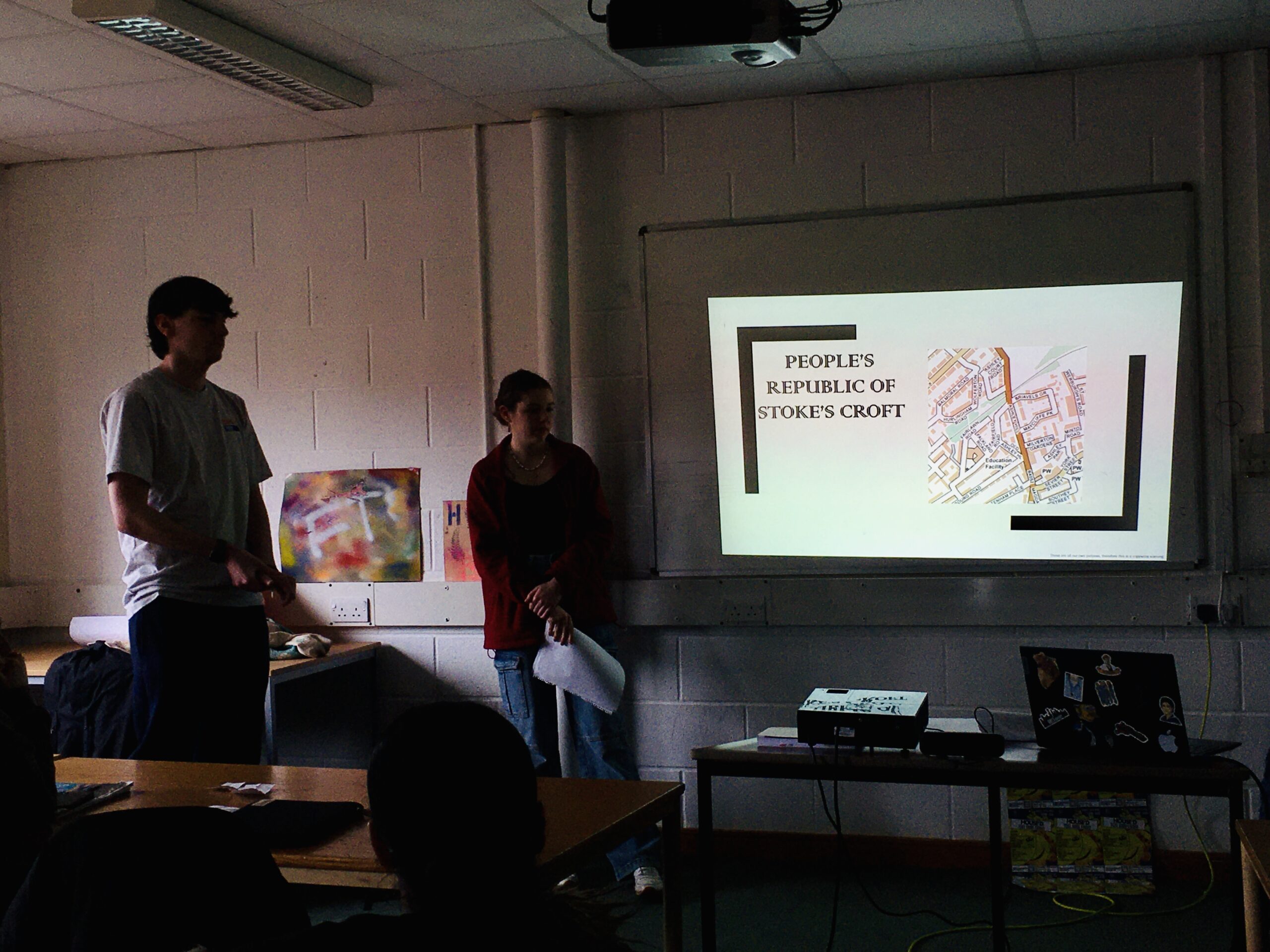Pre-trip collaborations
Given the emergent themes involved (gentrification, post colonialism, black joy, resistance, reparation and justice), this was going to be a contentious project for me to take on.
I became a kind of community node, connecting activists and organisations in a way that listened to and embedded their needs and perspectives at every turn.
Introductions
I invited Jeff Knight (Bristol’s cherished street philosopher and Big Issue seller) to share his insights of Stokes Croft by filming him giving a tour of the area. I created an illustrated booklet that picked out Jeff’s key messages
Participatory warm-up
I travelled to UEA to co-run a workshop for students about ethically engaged, co-creative methods with Teresa Armijos Burneo. .
Psychogeographic mapping
I also created a range of psychogeographic maps of the neighbourhood I live in. These feature stories as told to me by my friends and neighbours mixed with my own. These maps also record the neighbourhood in the way I experience it, as a community.
Mental mapping
I also bought 20 copies of the Big Issue and made 40 mini fold-out booklets which I gave to each of the students when they came to Bristol.
I invited them to make their own psychogeographic maps during out walks around our neighbourhood. I also painted some as my own artistic response.
Mapping connections
Making the maps also helped me to think about how dynamic my neighbourhood is. I co-created briefs for a number of collaborative projects with different partners and organisations
Subjectivity and intersubjectivity
Through this exercise I invited students to consider how they are not a neutral presence and more think more broadly about the intersubjectivity of research.
Acknowledging and exploring our own subjective experiences transparently and collaboratively is also vital in ensuring that we make work that is ethical and relevant.
Project partners
I connected UEA students to a number of project partners including; Benoit and PRSC, Dhaqan Collective, Cleo Lake (Decolonising Memory), //Kabbo and Bashart Malik, Sherein and Negat and Refugee Women of Bristol, Judith Davis, individual allotment holders and playworkers at Felix Road.
Students also participated in walking tours around St Pauls that explored Judith’s Gangster Gardening and //Kabbo’s approach to urban greening though the amazing organisers at Vocalise magazine.
Co-producing research
Across all the projects students were invited to co-create research with people directly and think about how challenging injustice as a legacy of the work. As a legacy of some projects students have organised awareness and fundraising events and collaborated with activists and artists in more self directed ways.
The project has also inspired wider cultural action in Norwich with some students setting up Turkish cultural events.
Student presentations
On the last day students present their co-produced project findings and show an action or response that has been inspired by the work.
Students went and filmed their own Gangster gardening, made information banners to take back to uni (to host events to support women refugees at UEA), teaching decolonising memory dance to their peers and created their own street art zines
Debates with and beyond institutions
By being expansive in their presentation processes helped to spark new ways of thinking about research as a tool for empowerment within and beyond institutions.
This discourse chimed with the wider aims of the trip and the work of the tutors who are involved in decolonising work within academia.
Communities of Practice
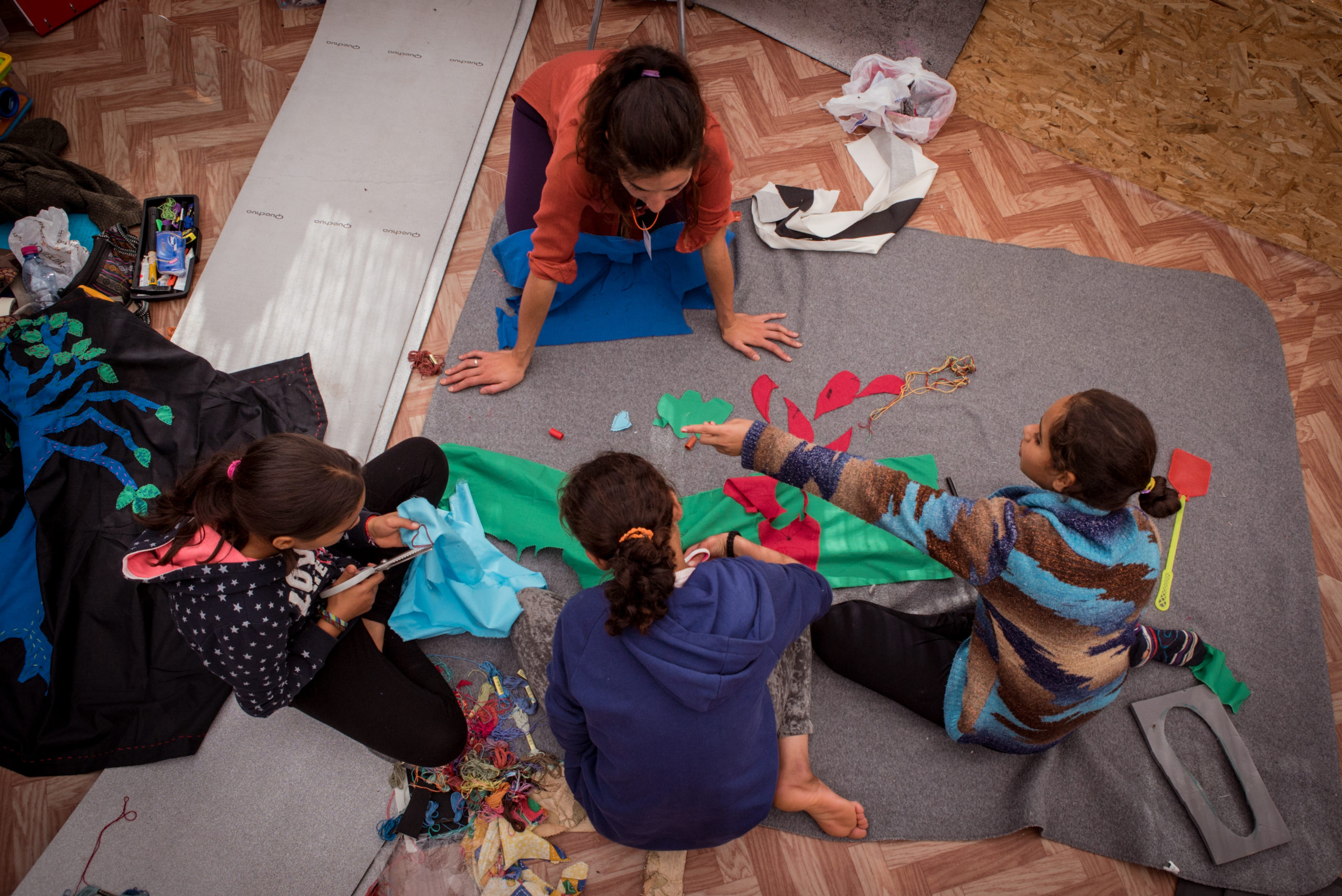
‘Communities of practice (CoP’s)’
Communities of practice are formed by people who engage in a process of collective learning and it is this age-old process (but relatively new term) that characterises my approach to creative learning and engagement.
Mixing different people who have diverse experiences of similar interests is a characteristic process of how I co-create spaces and experiences.
The Communities of Practice that we develop enable and encourage intergenerational learning, peer sharing and utilise inclusivity as a creative asset.
‘Teaching to Transgress’
In her book, ‘Teaching to Transgress: Education as the Practice of Freedom, (1994), Bell Hooks advocates for teaching students to transgress against racial, sexual and class boundaries in order to achieve the gift of freedom.
‘Engaged Pedagogy’
Hooks advocates for ‘engaged pedagogy’ that is holistic, progressive and inclusive since “to educate as the practice of freedom is a way of teaching that anyone can learn”. These ideas have been instrumentally formative for me.
